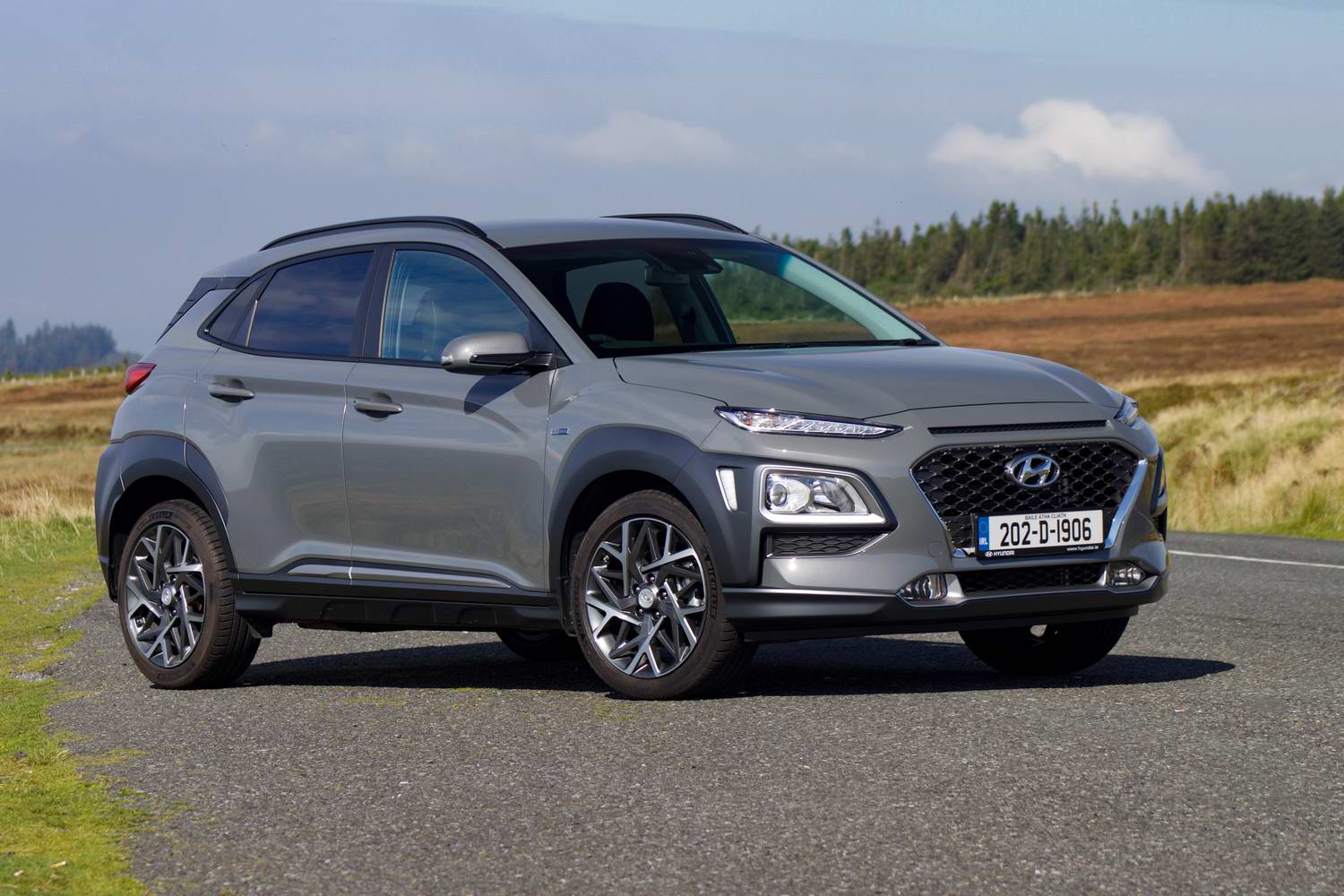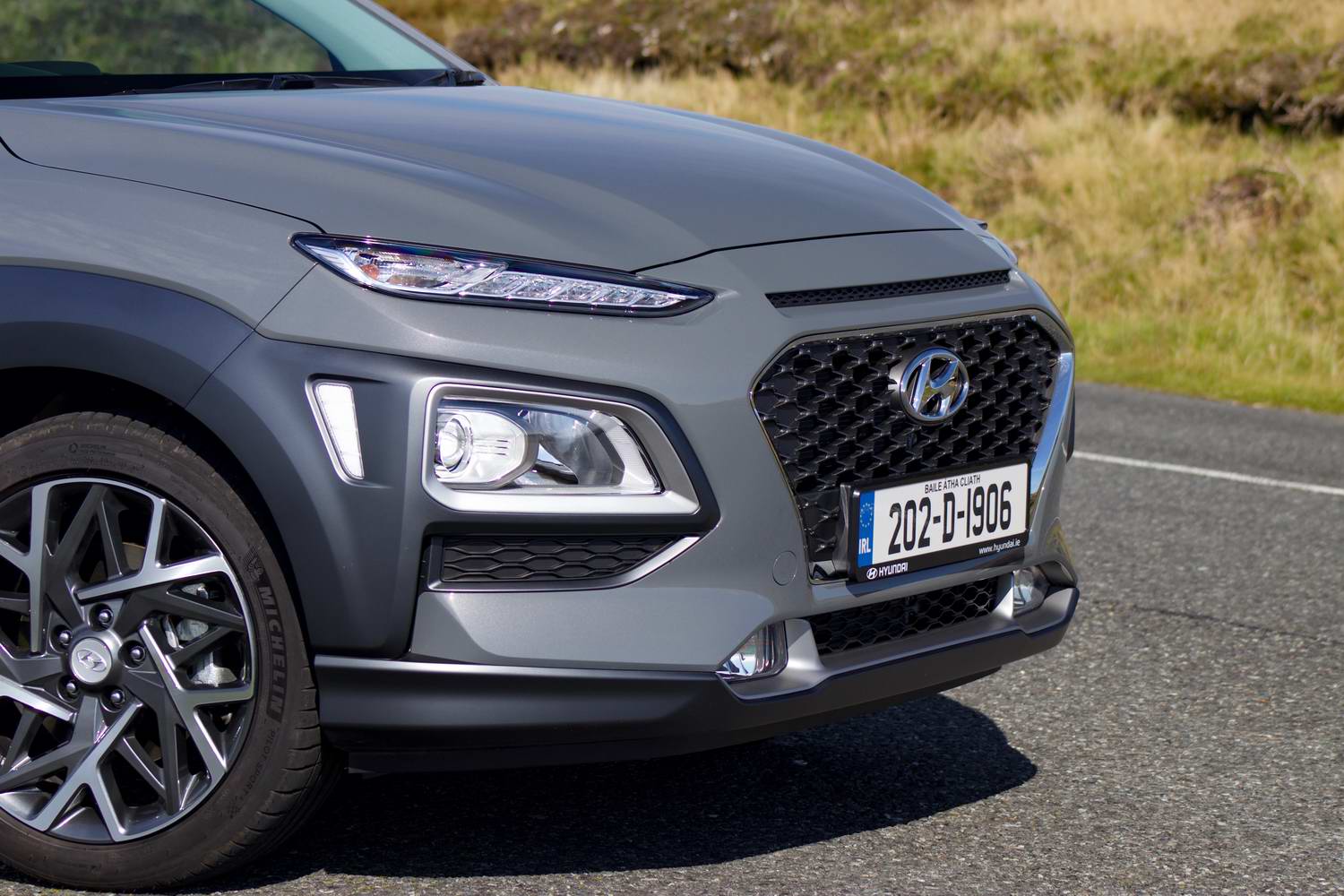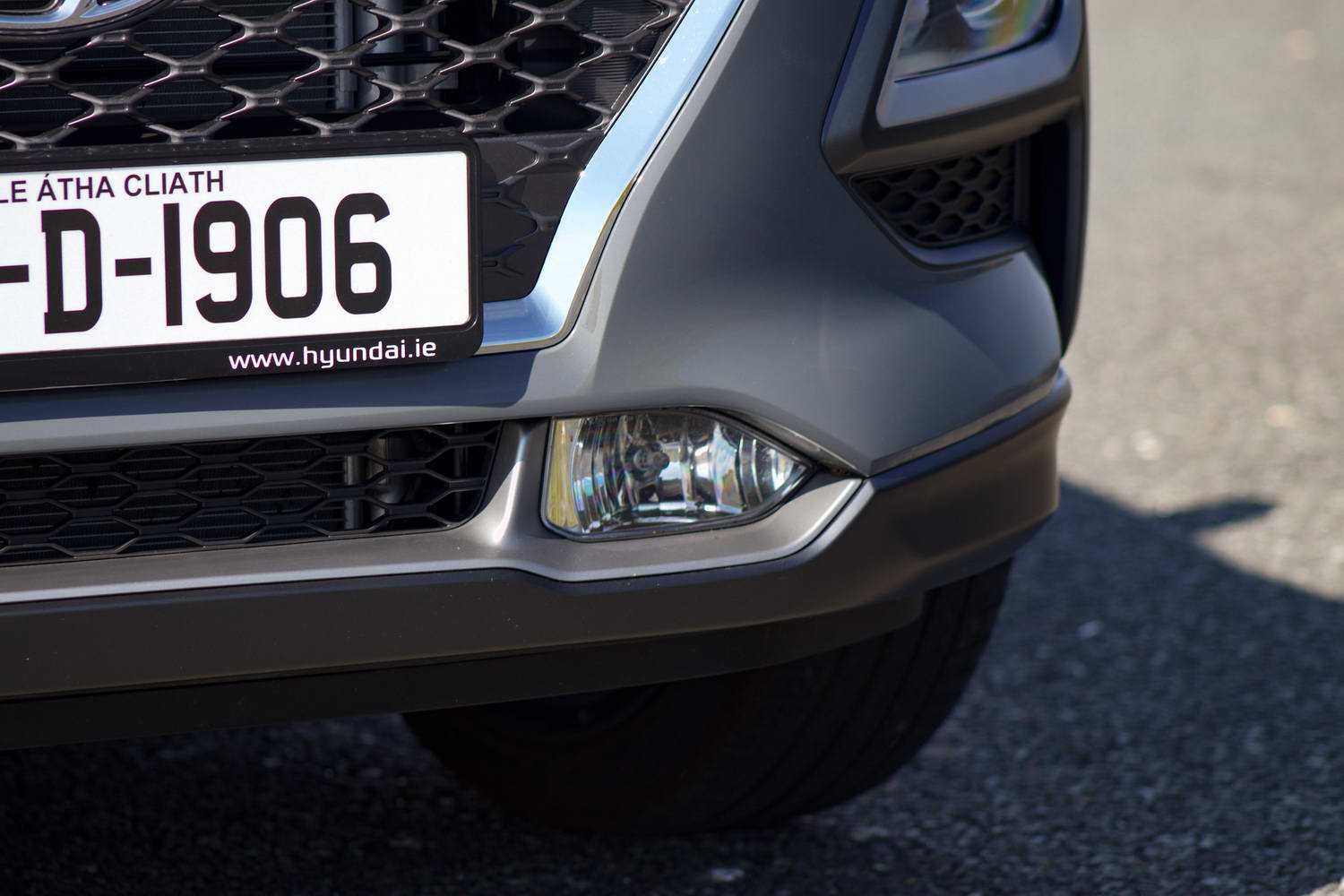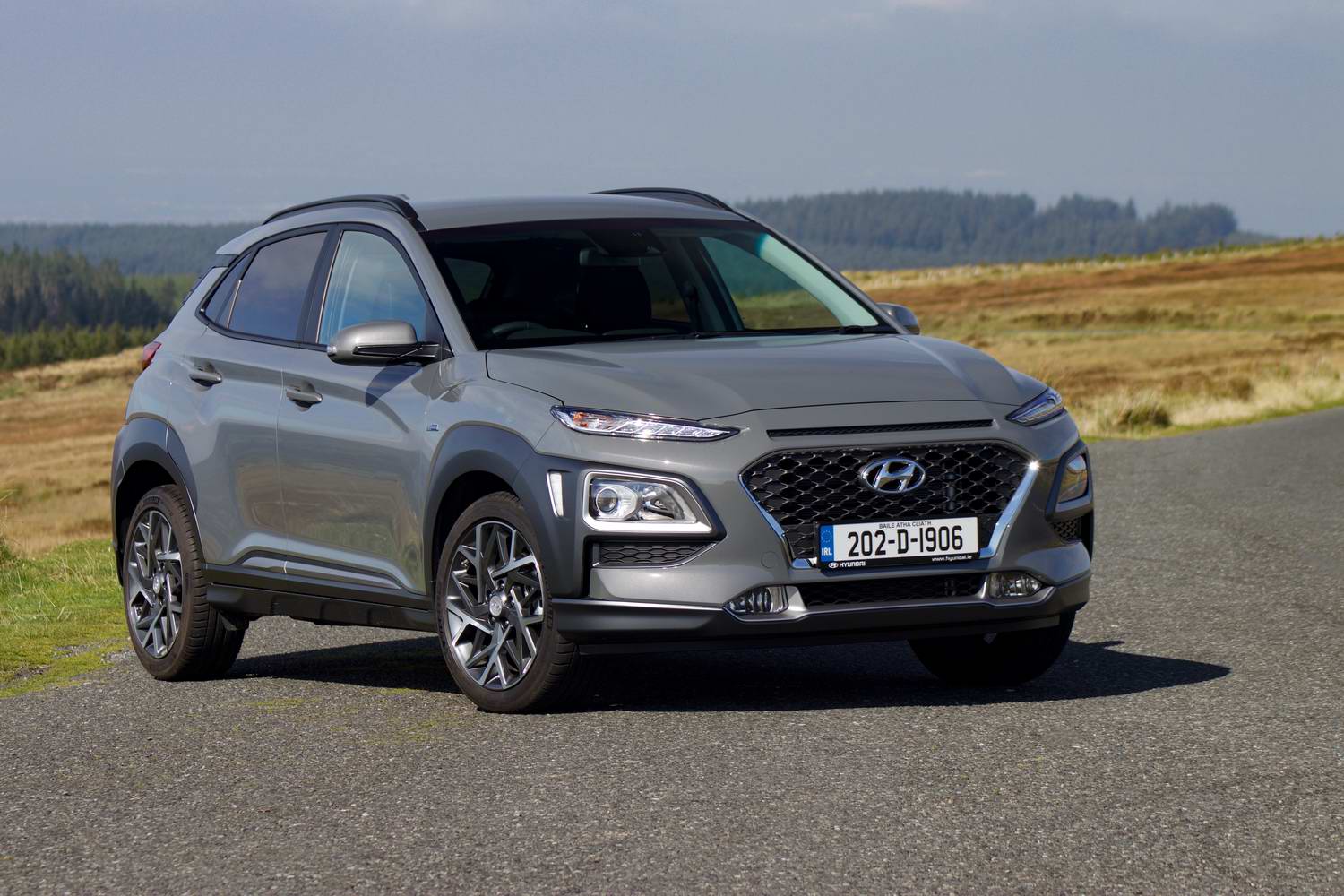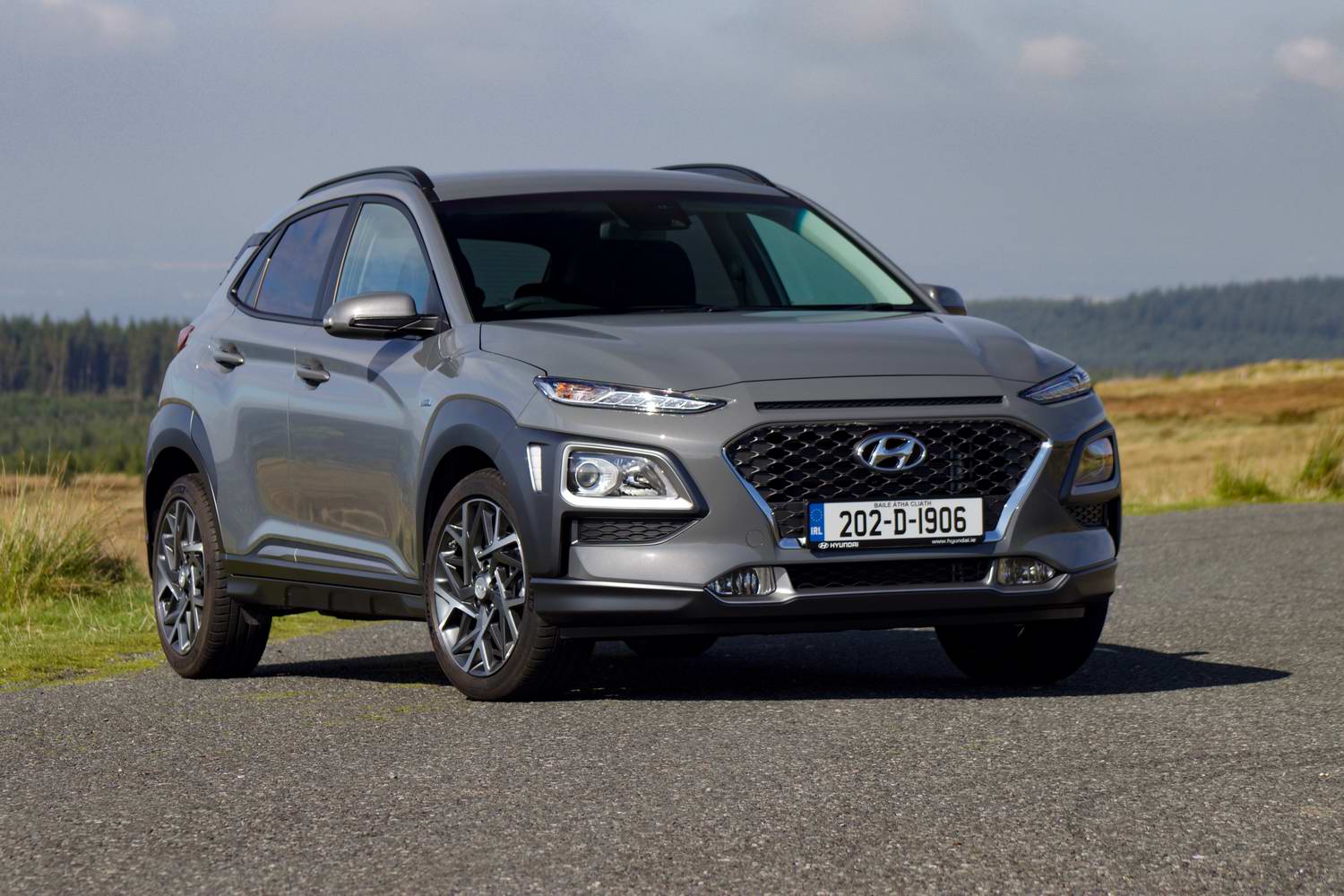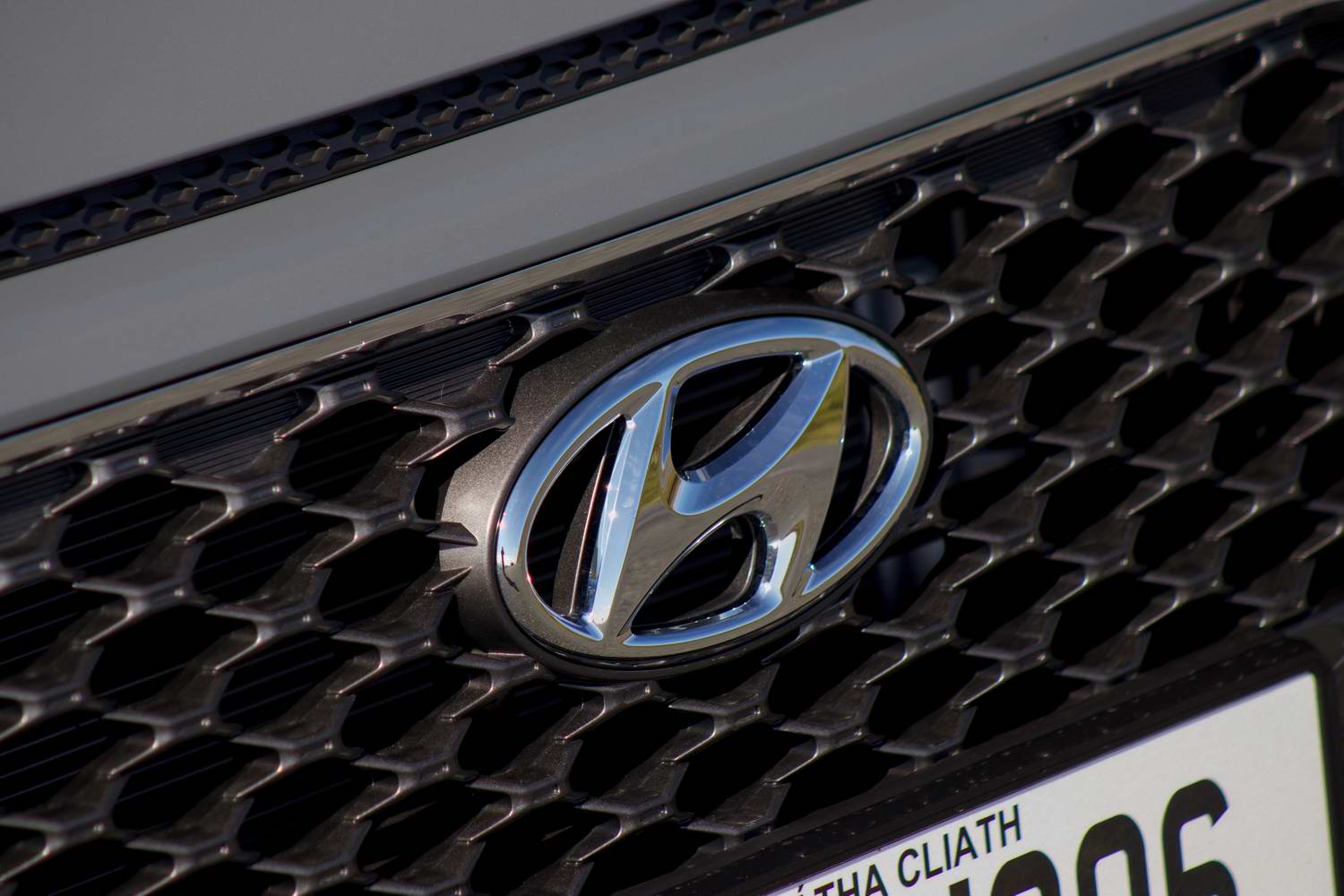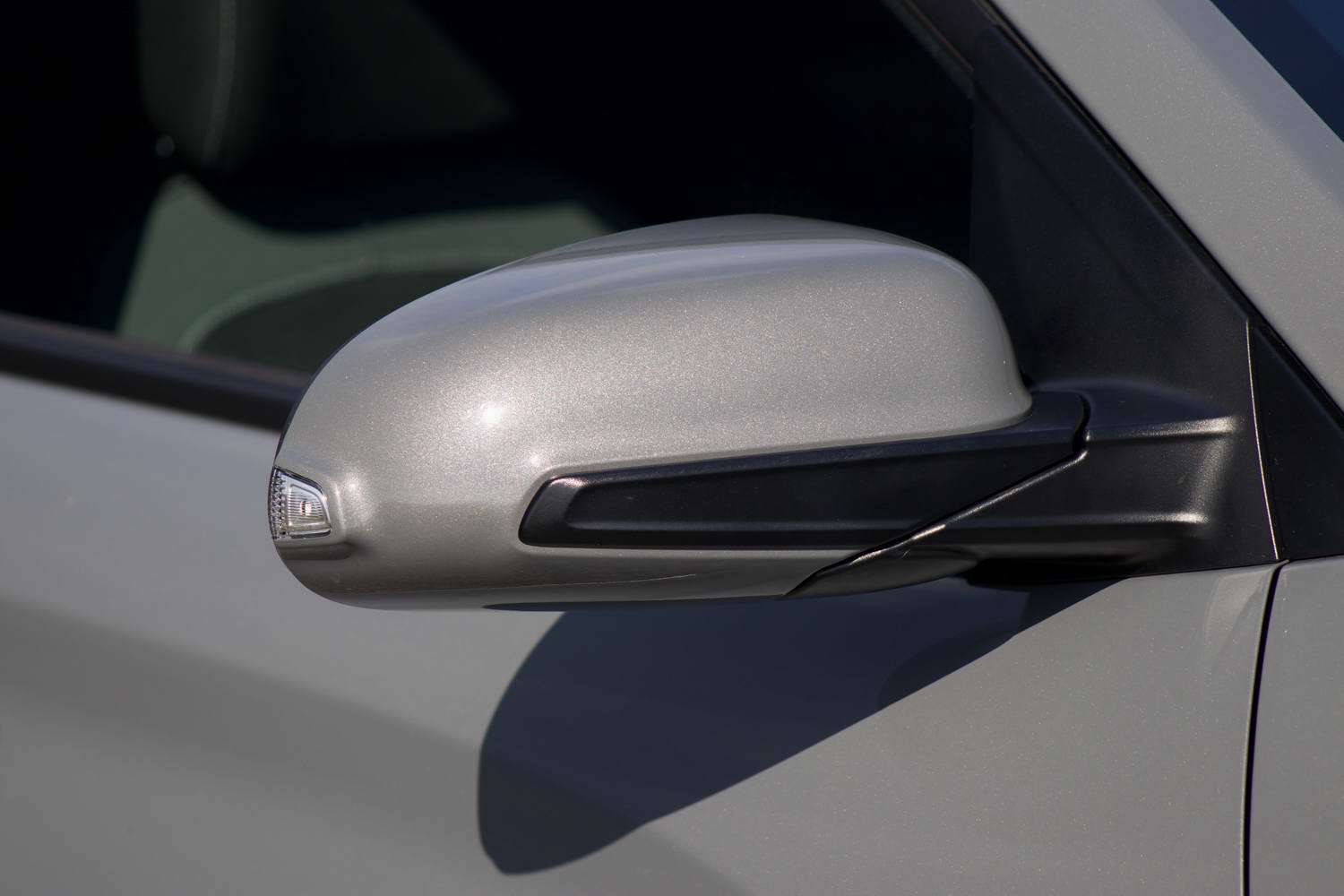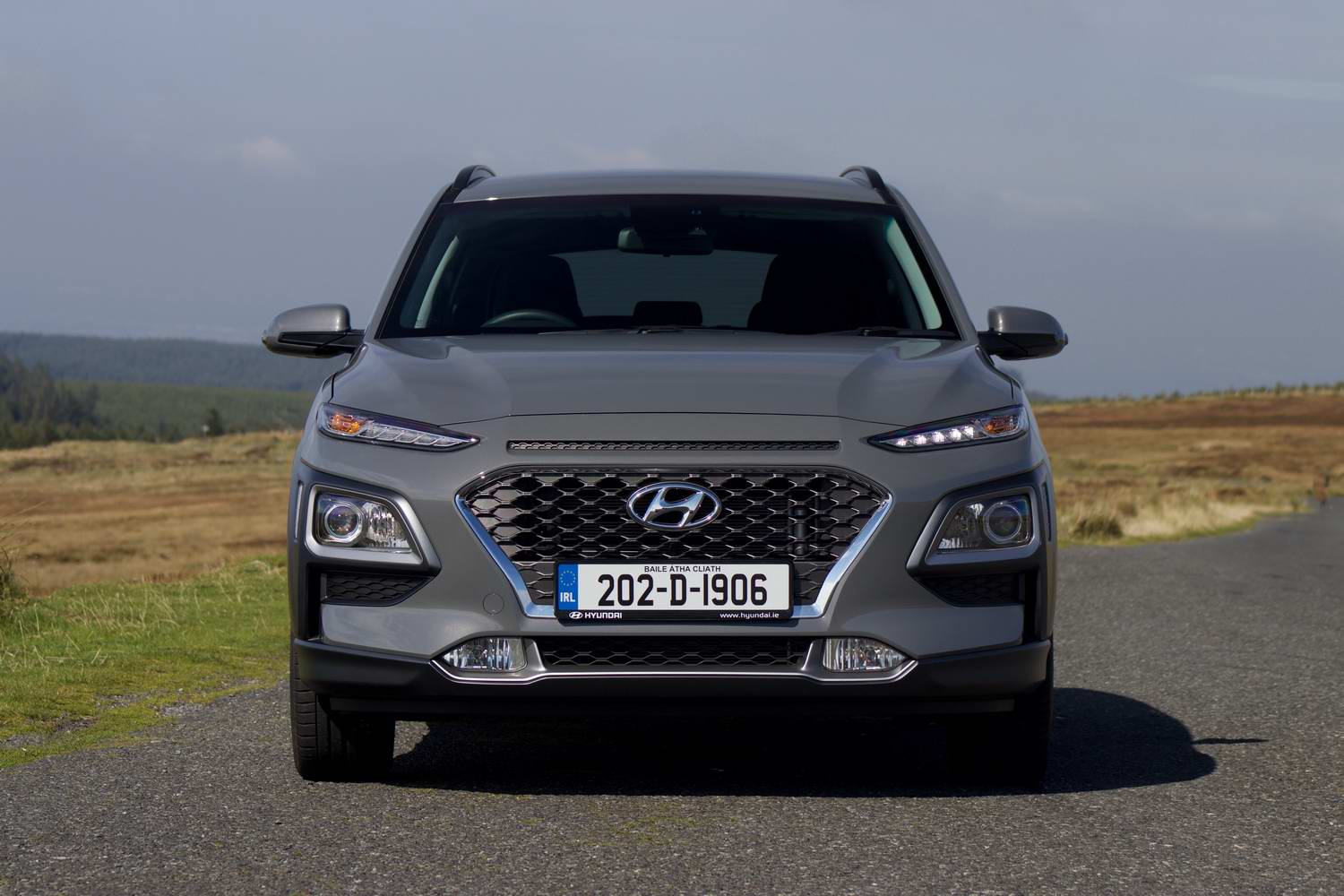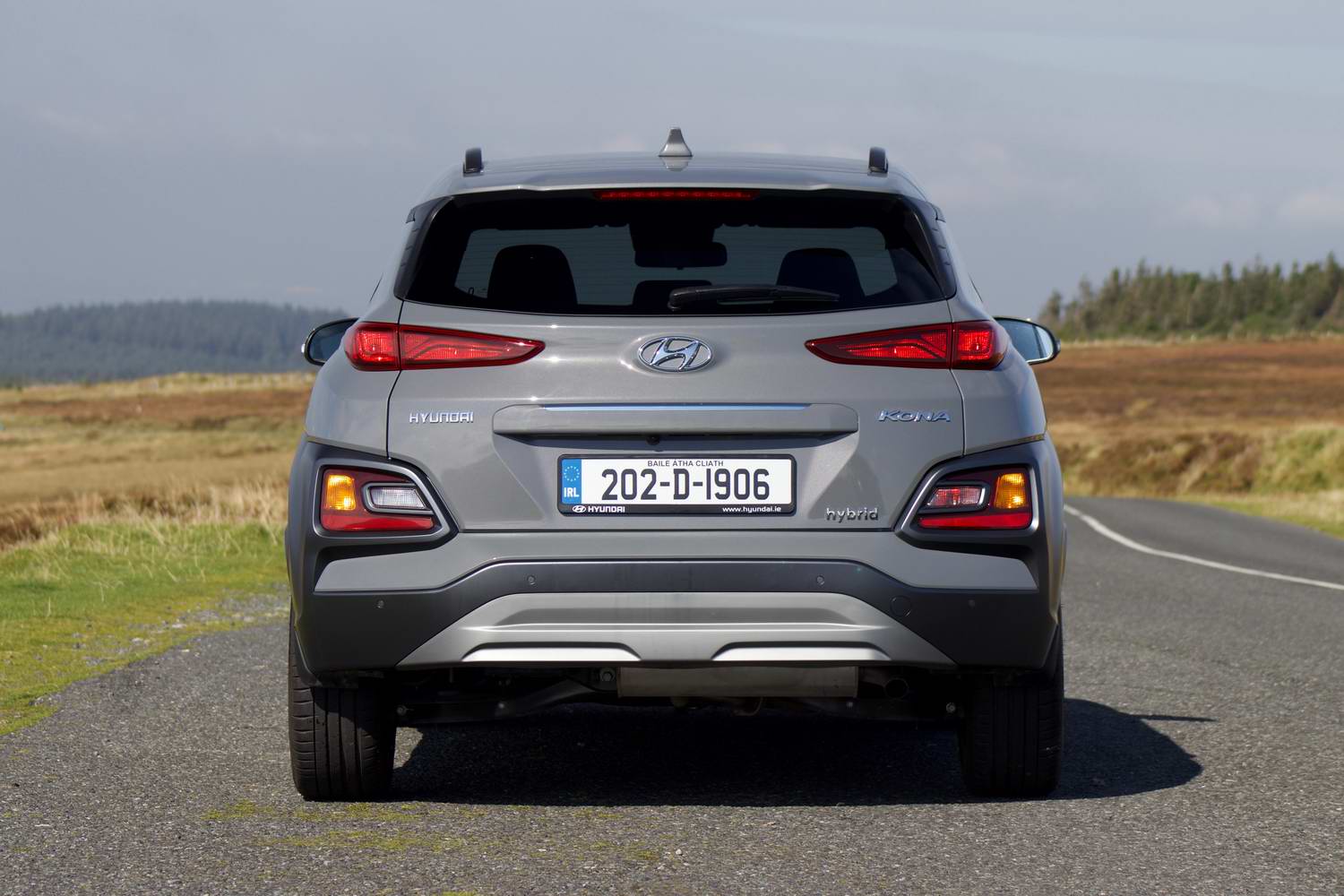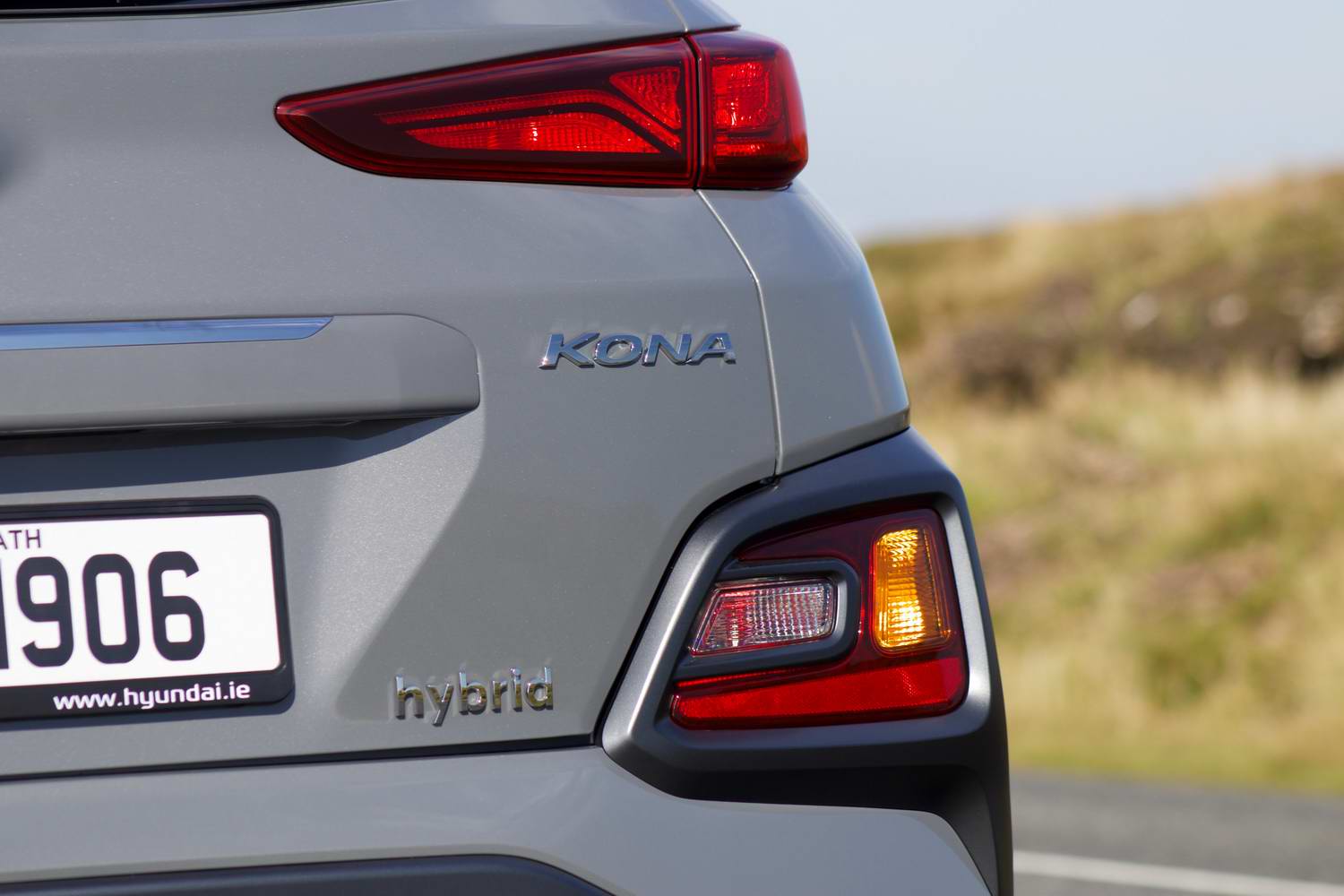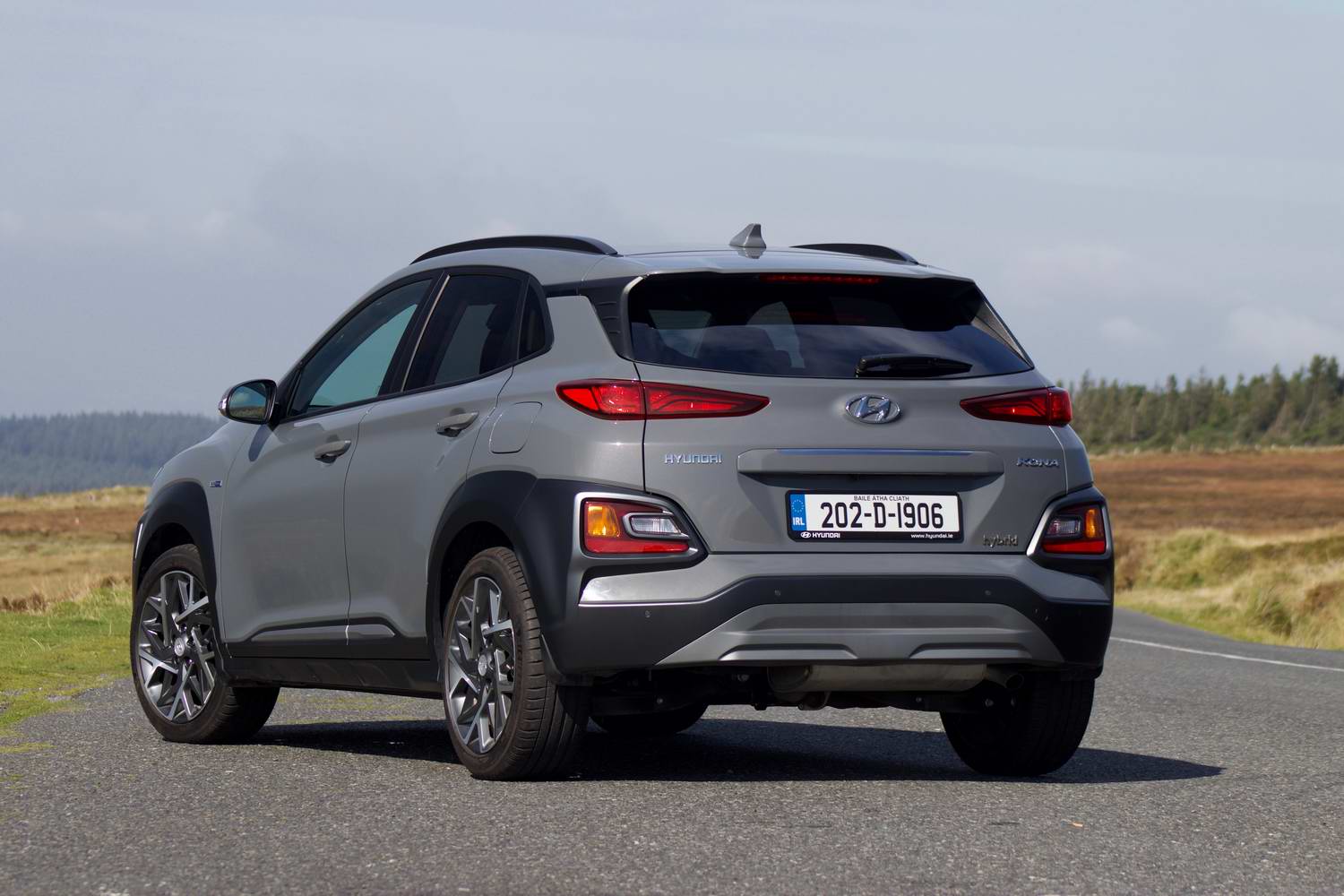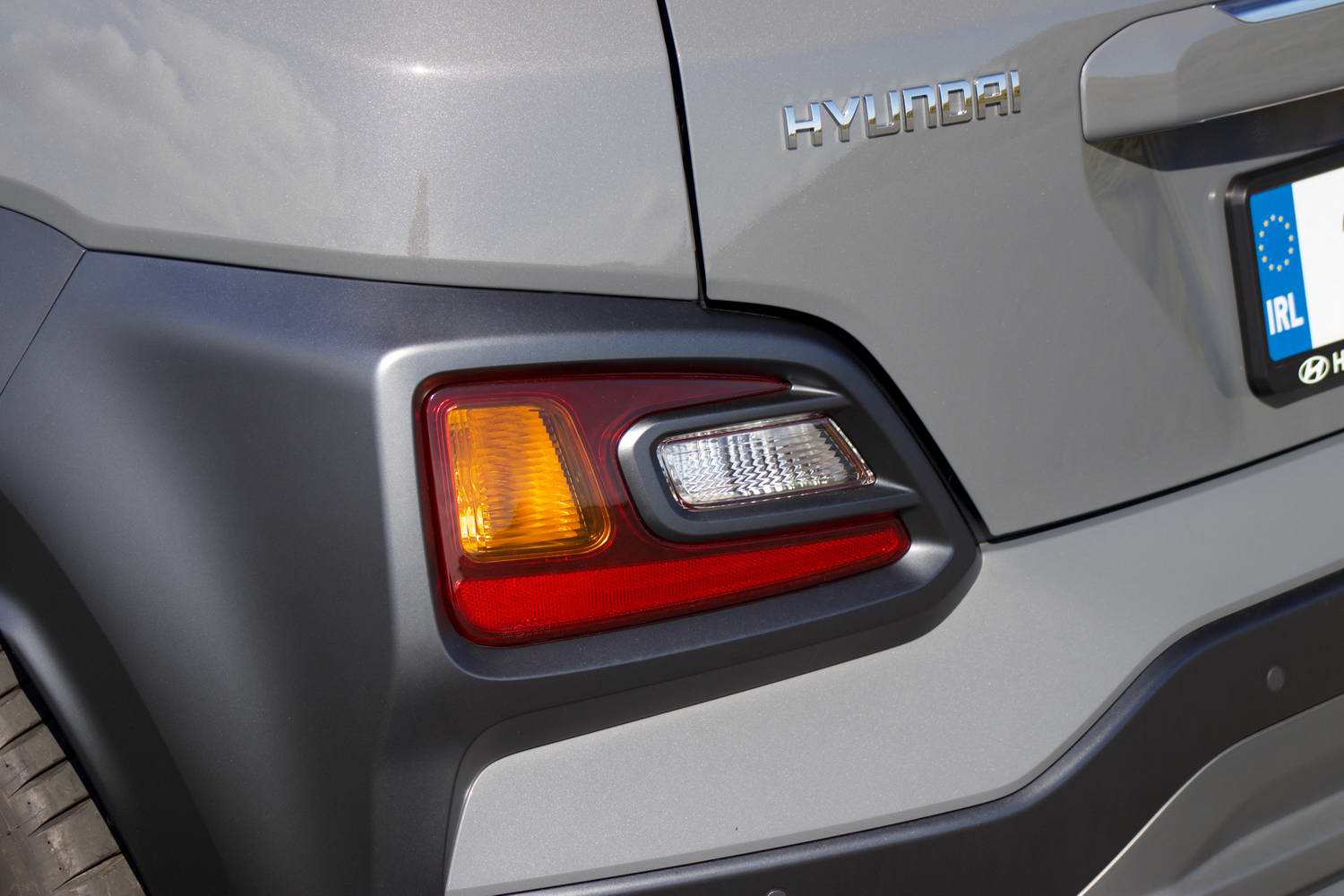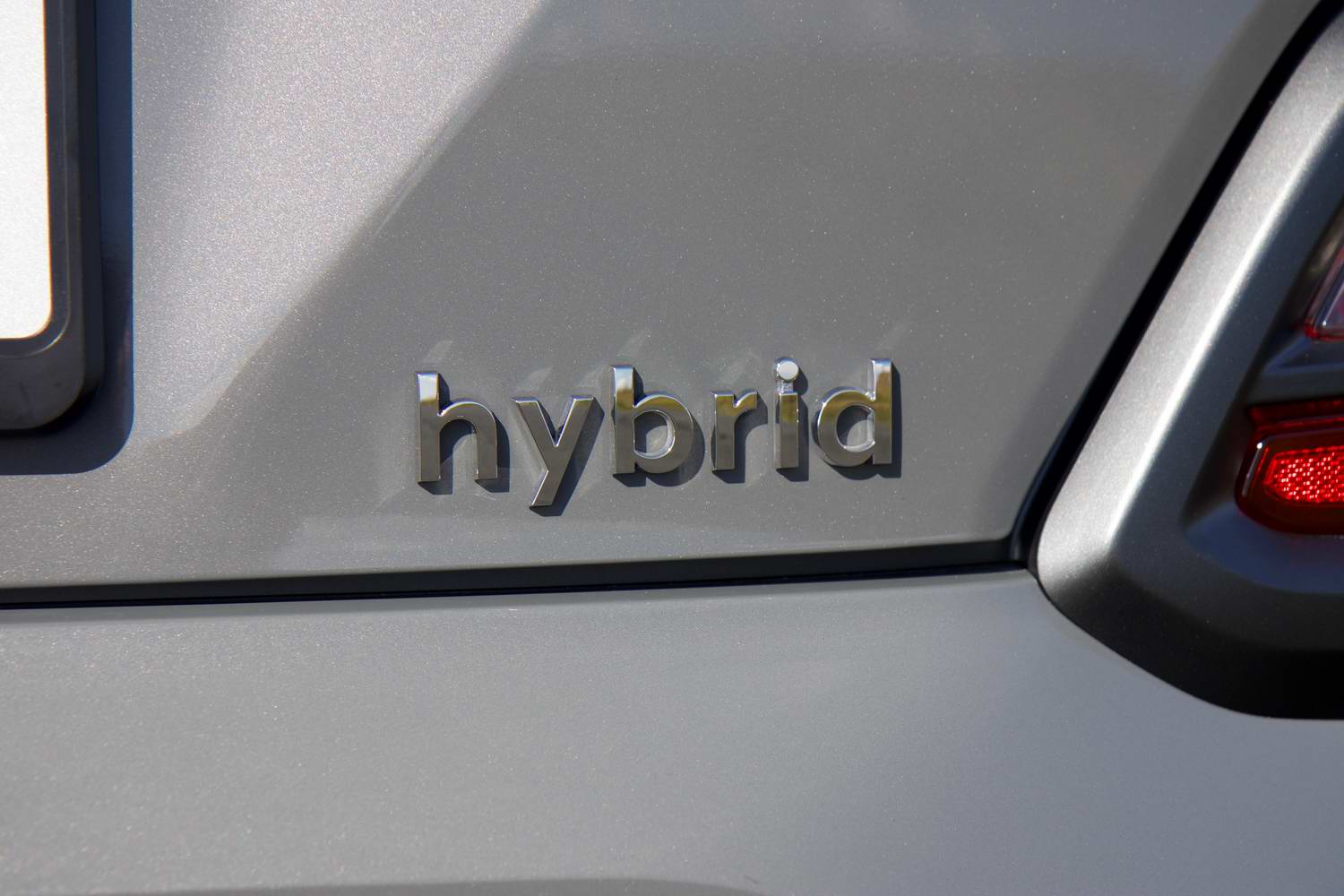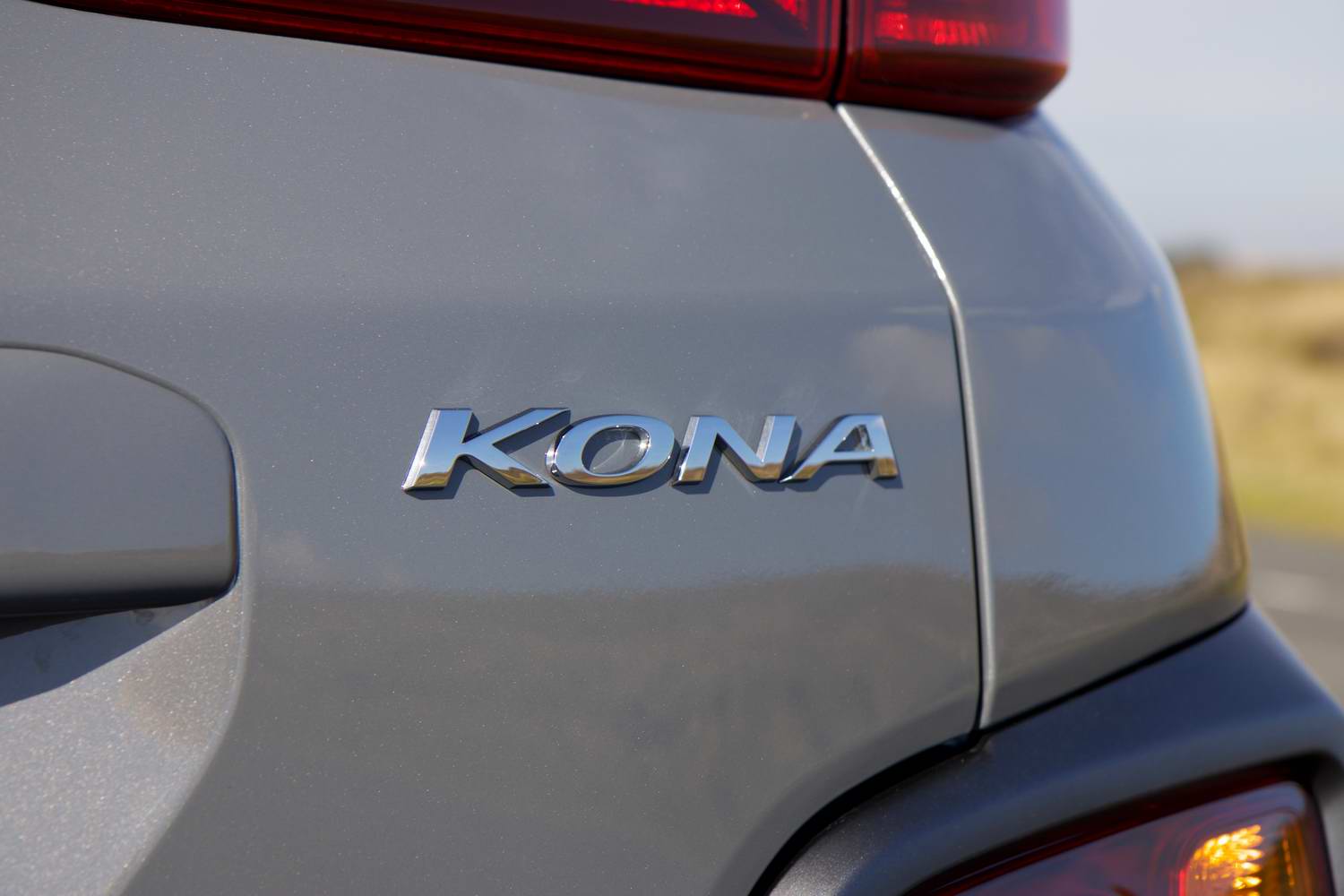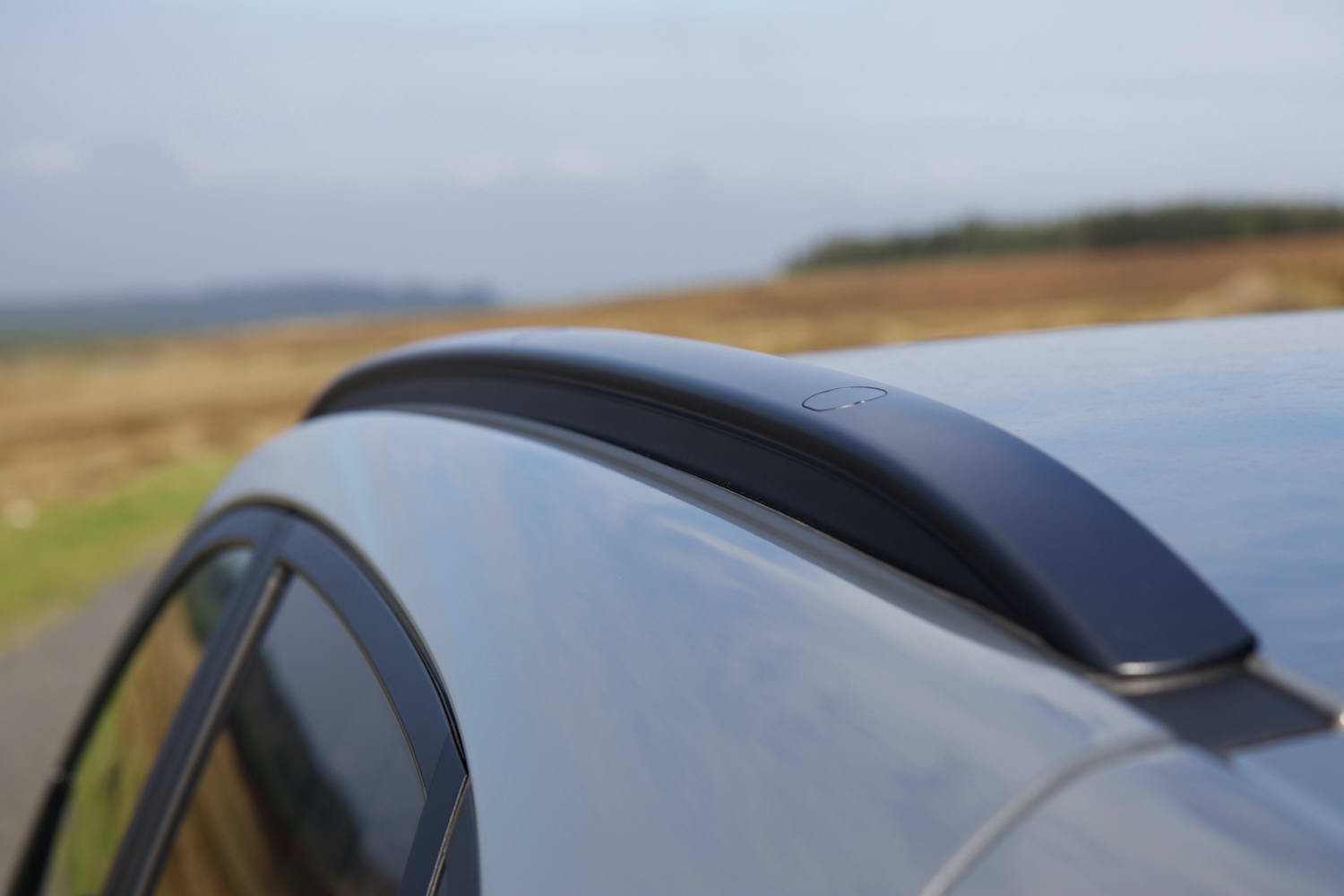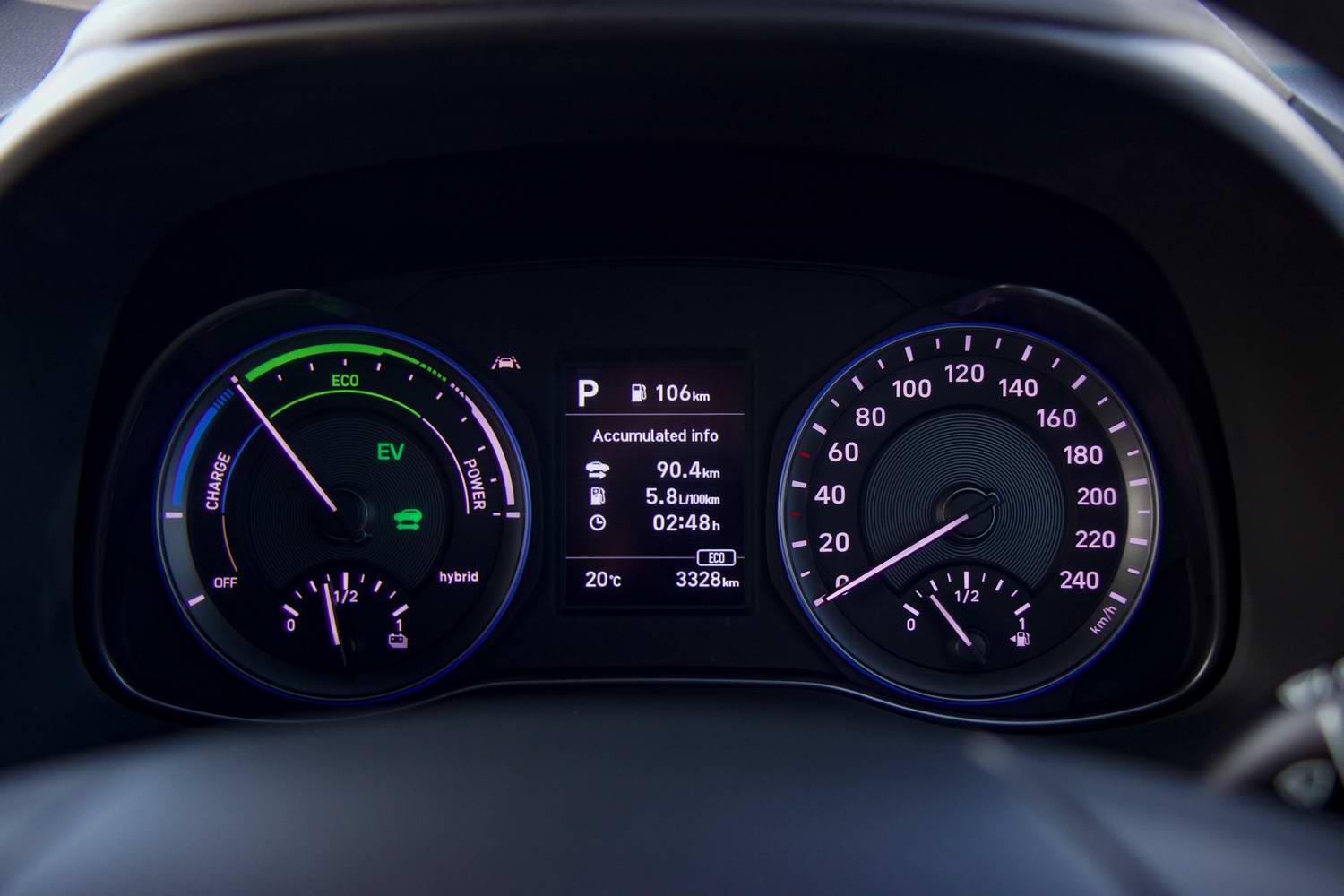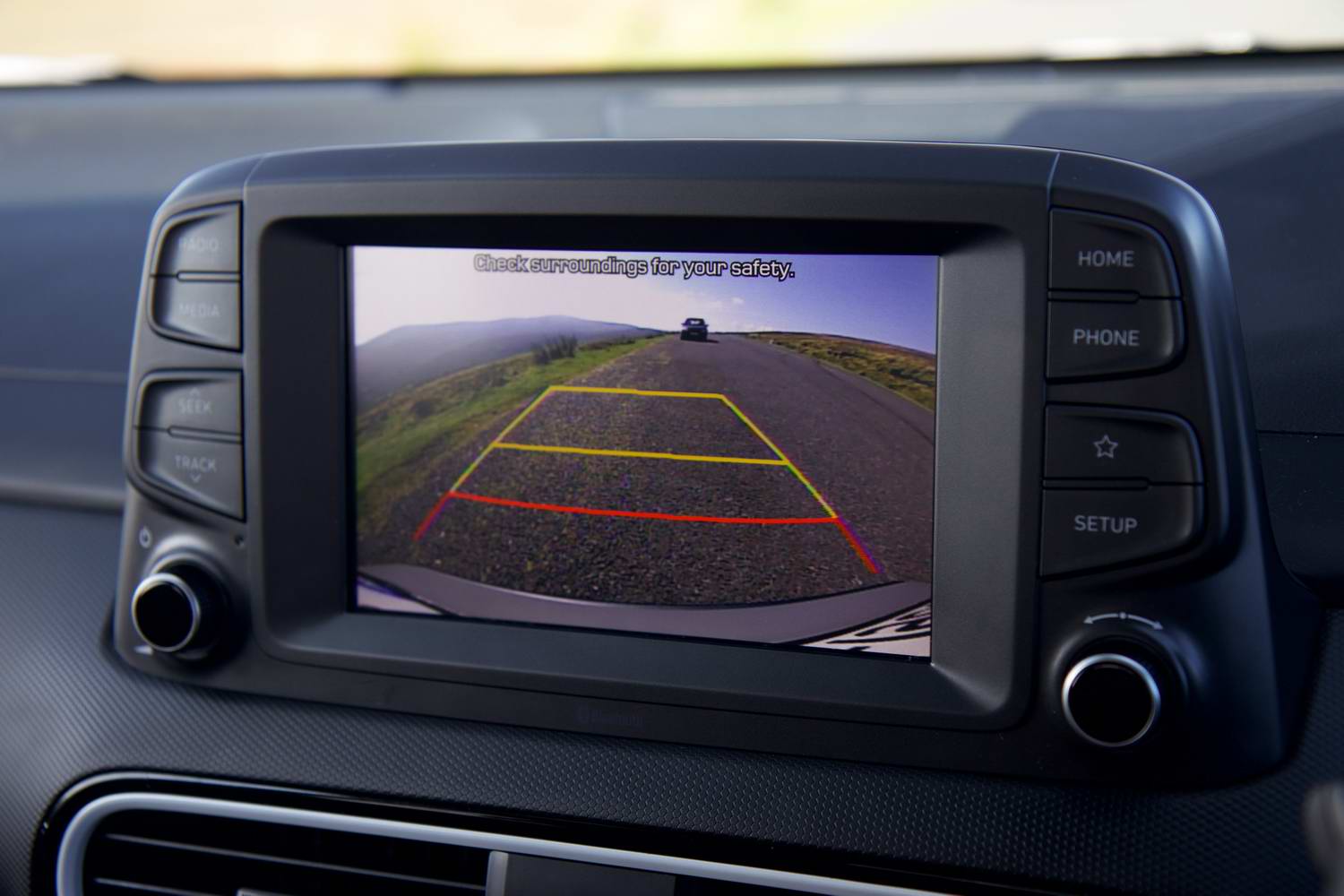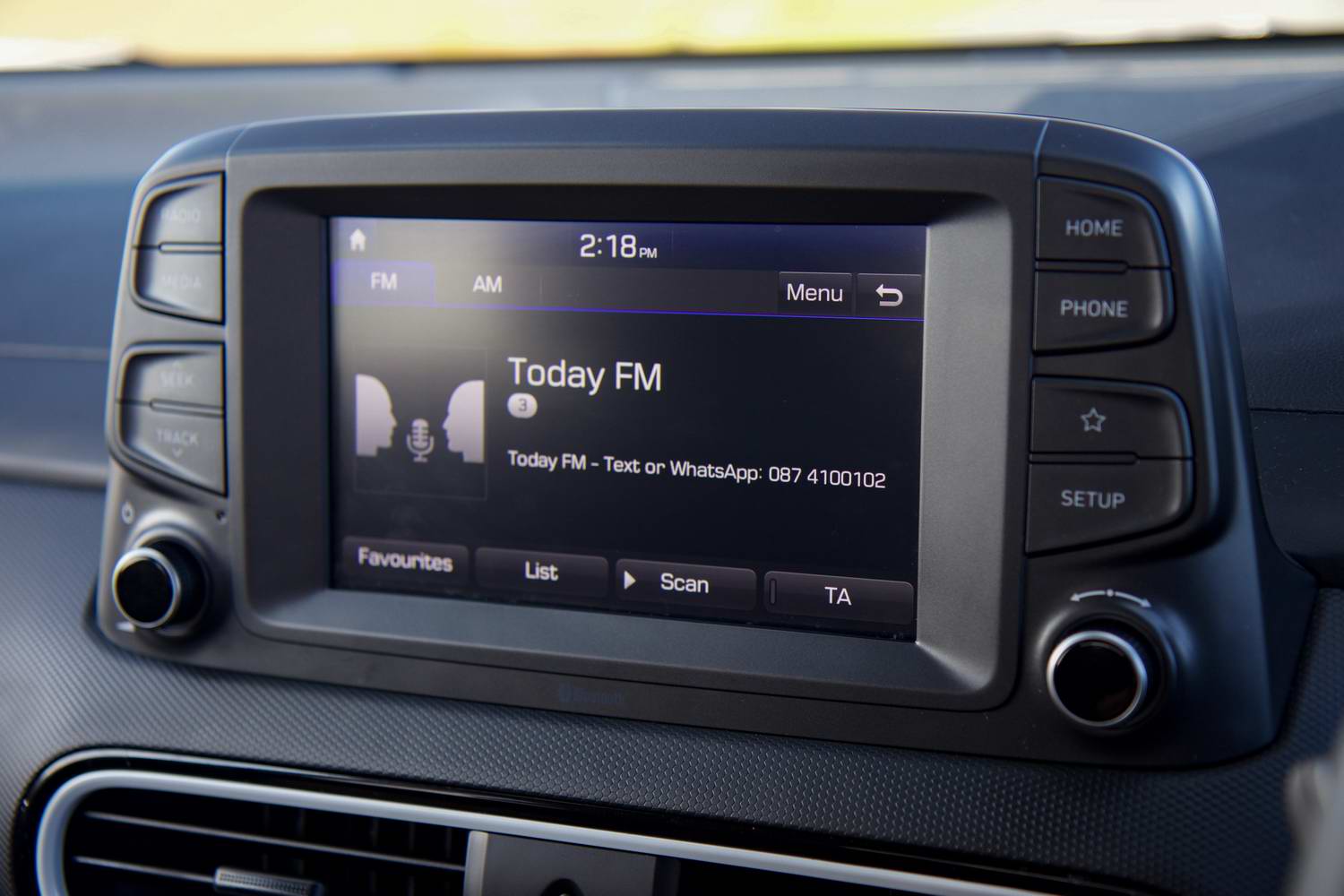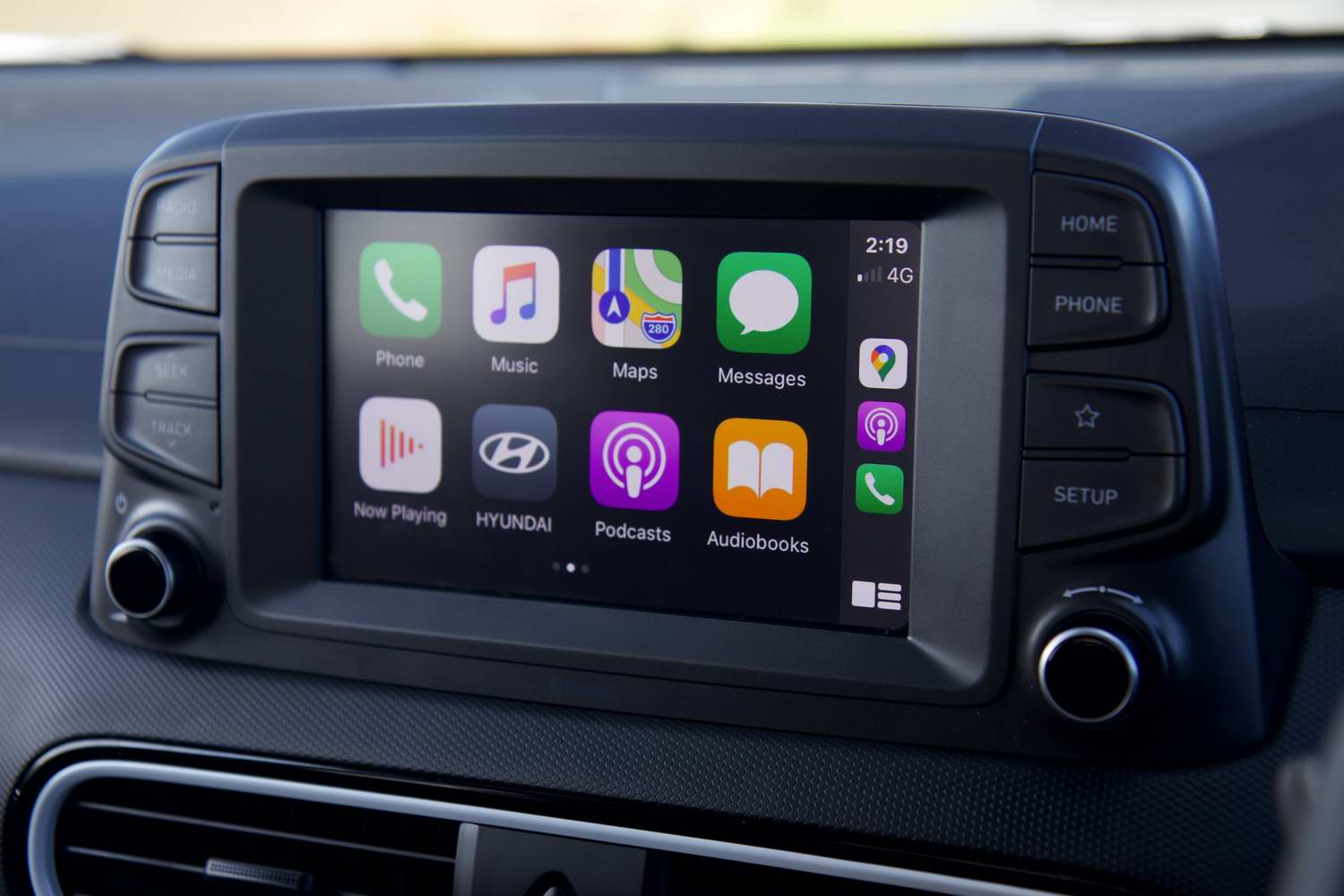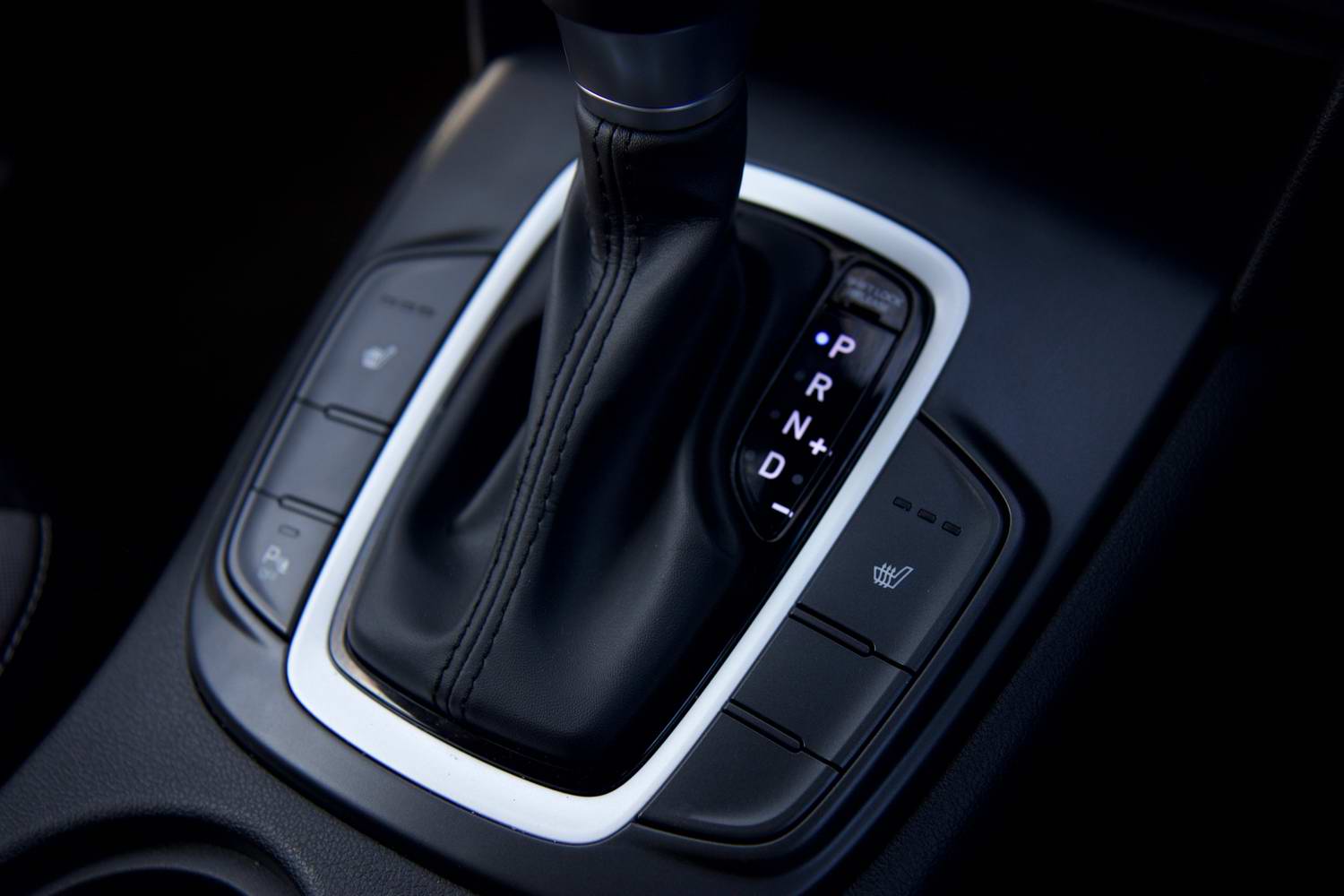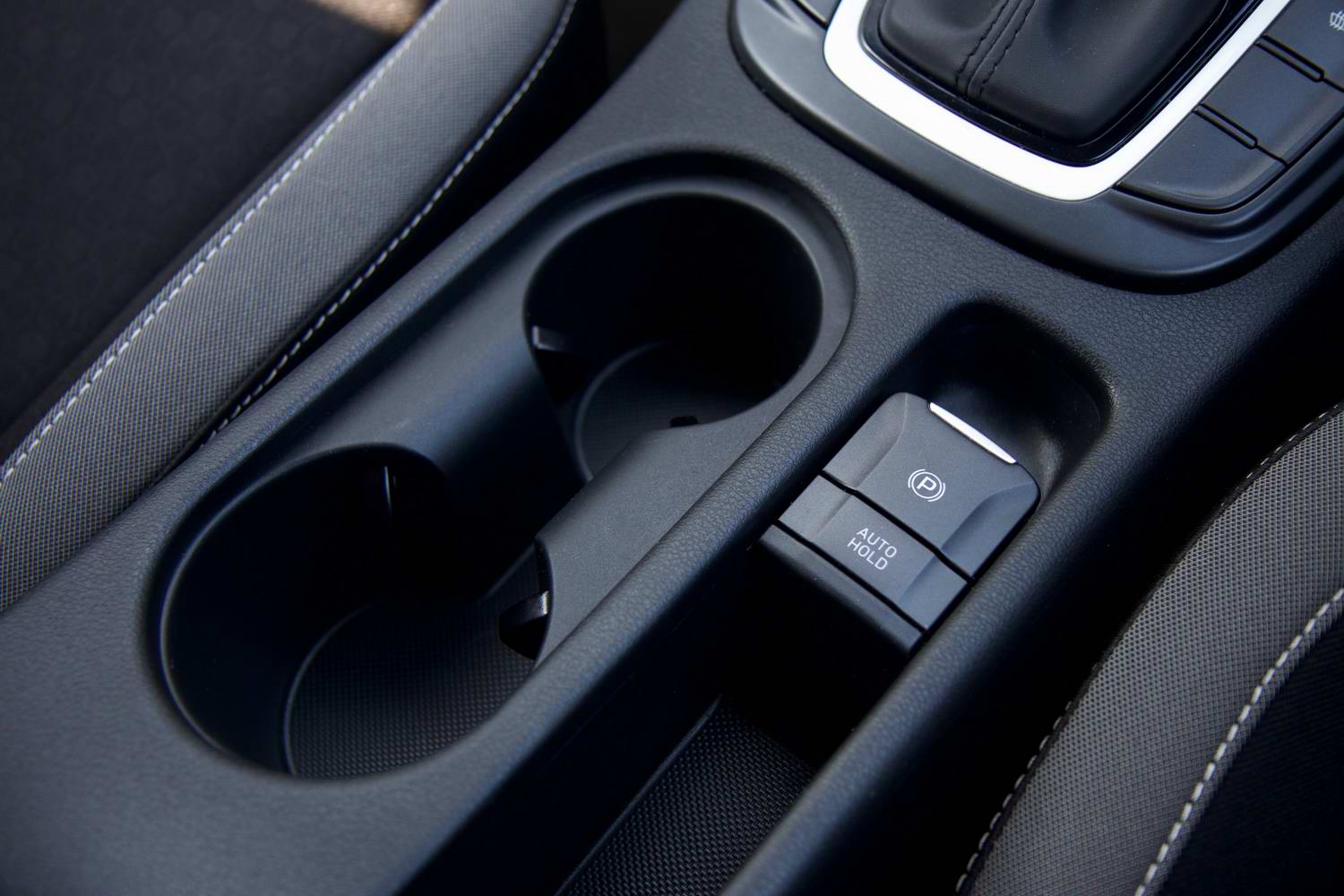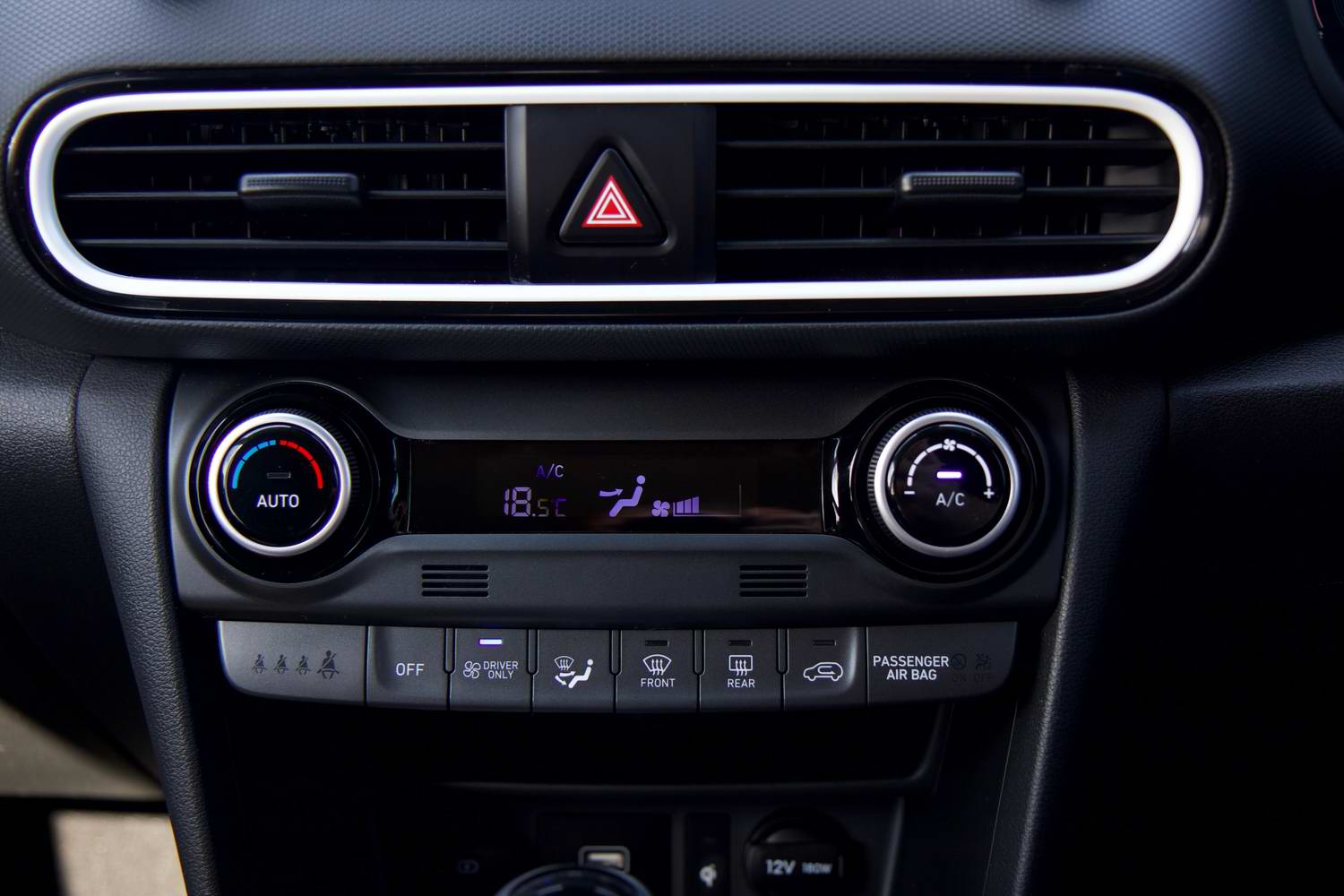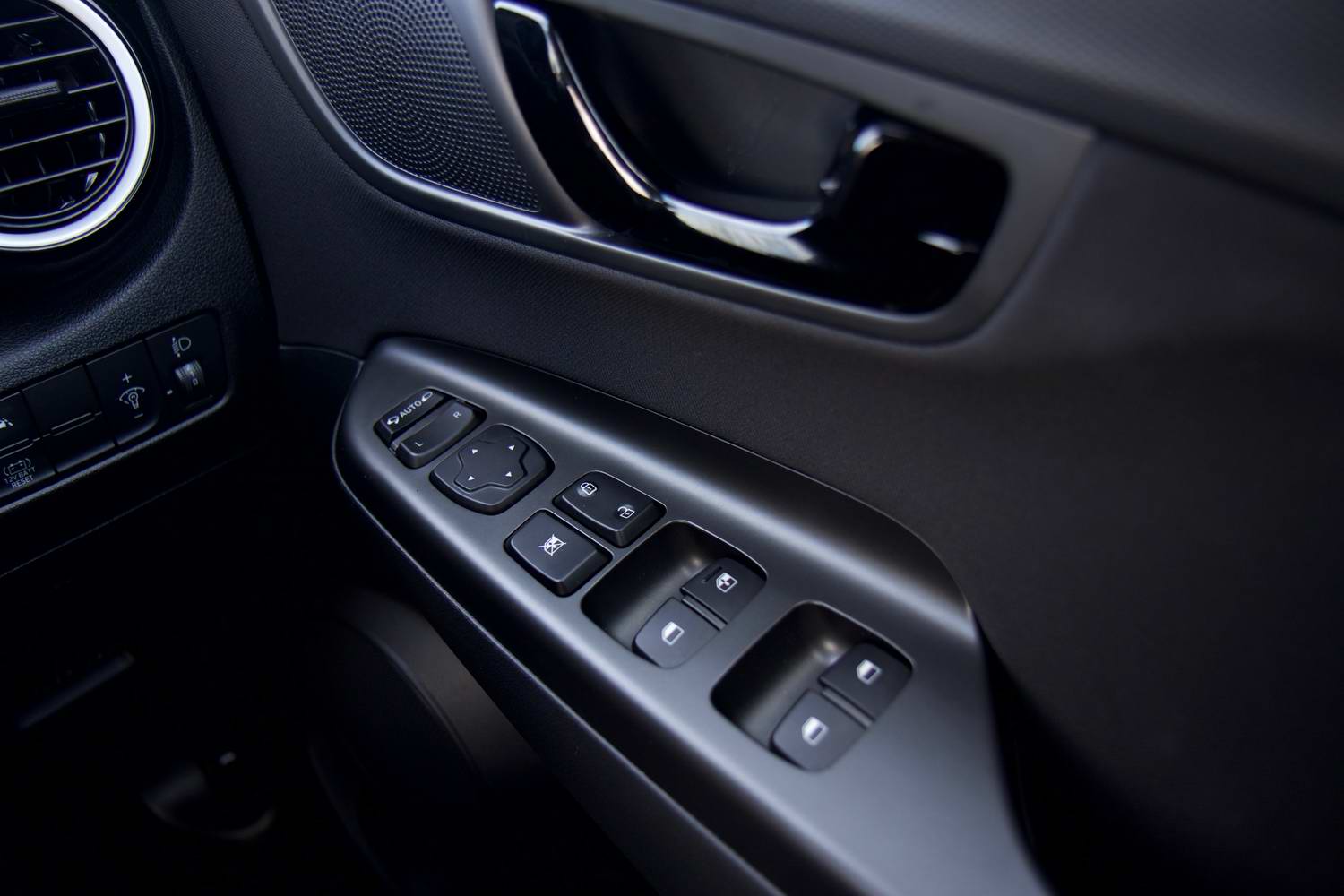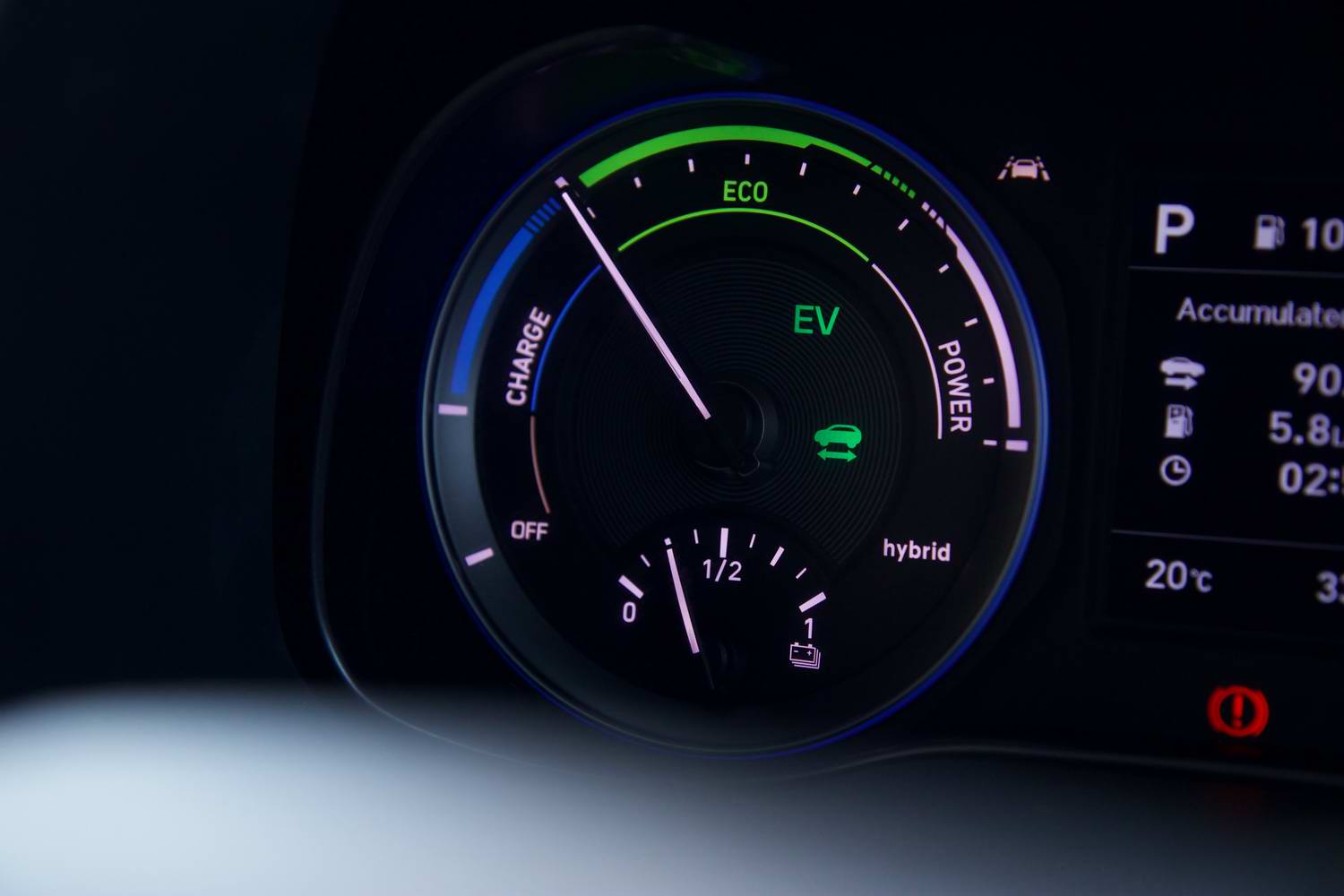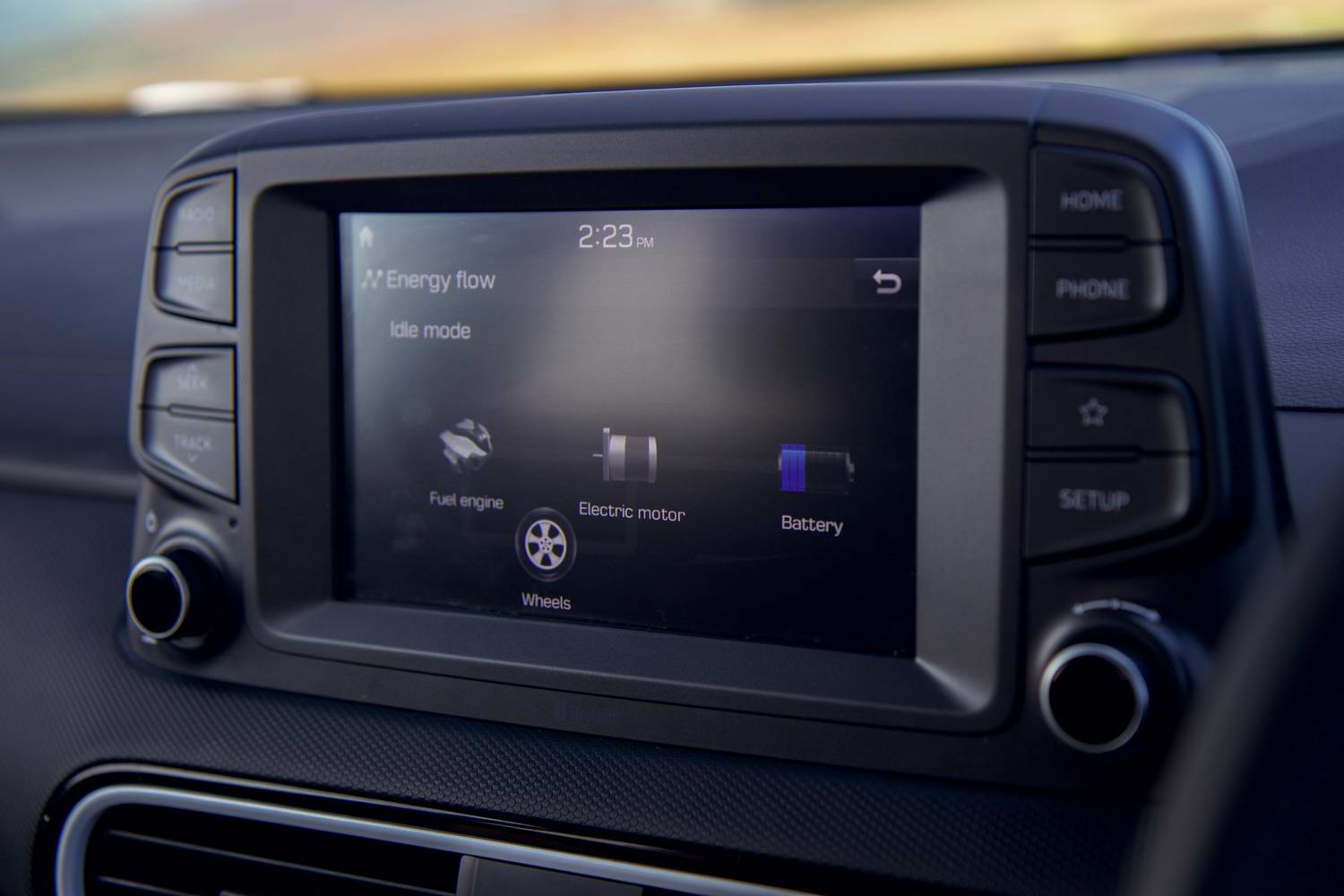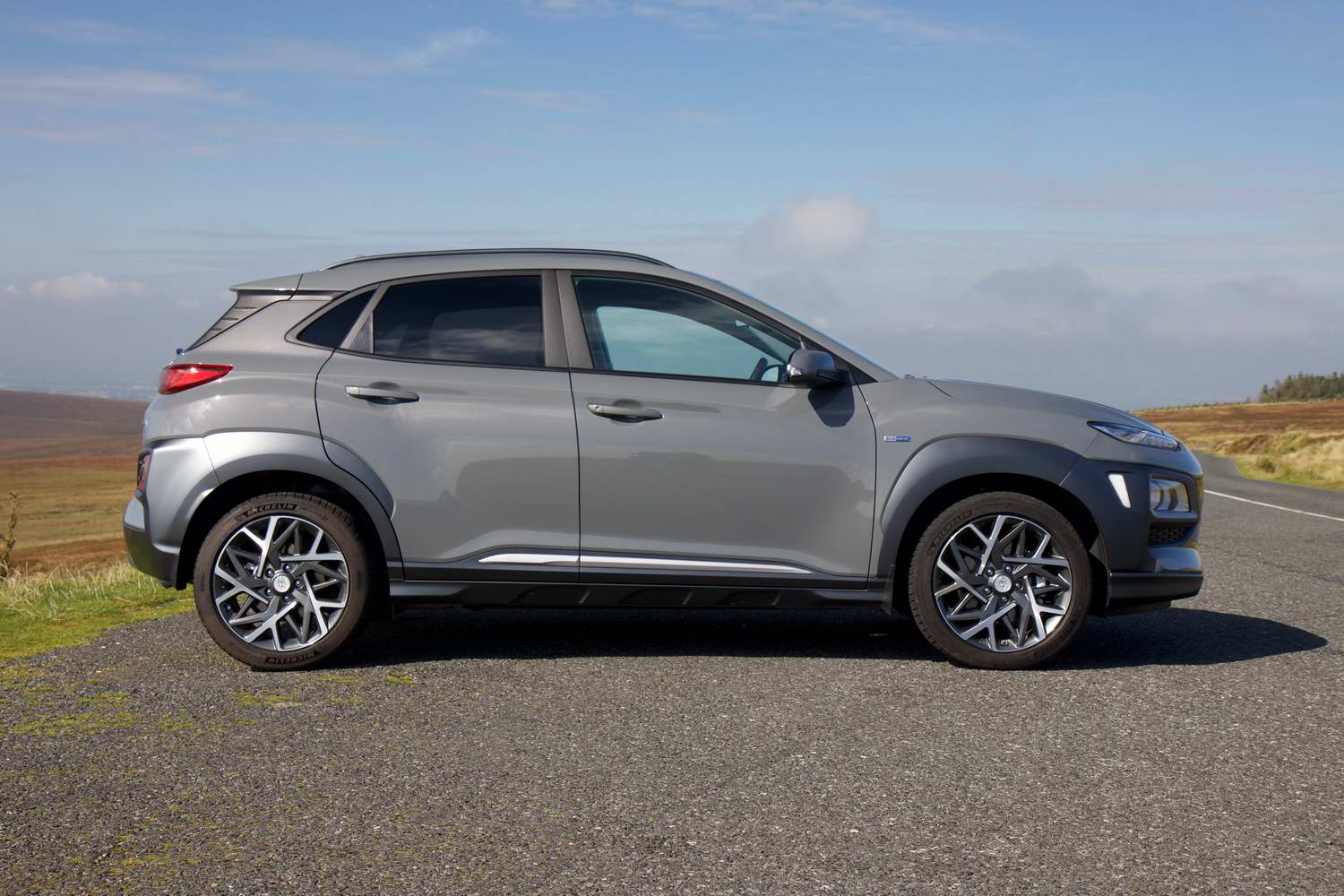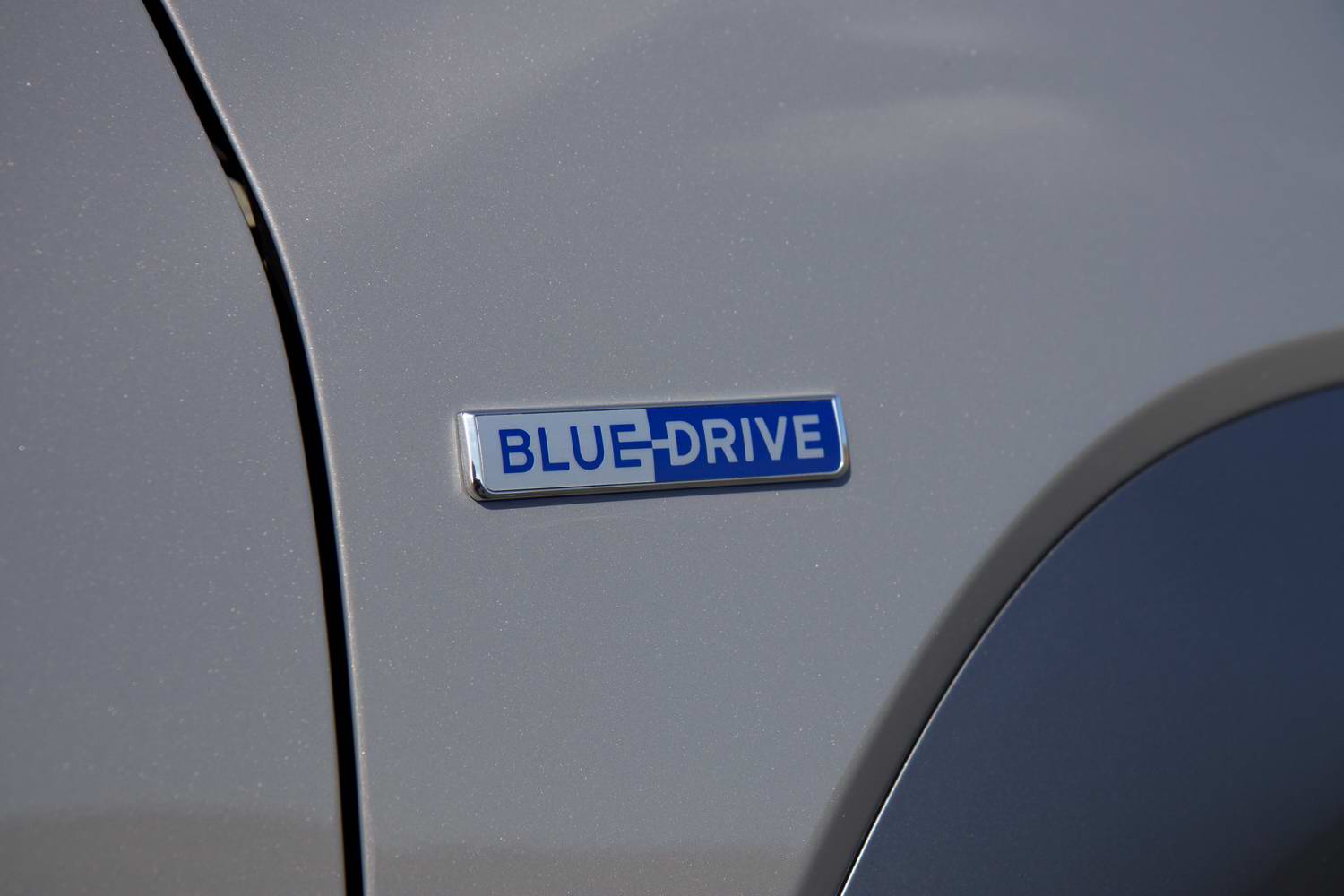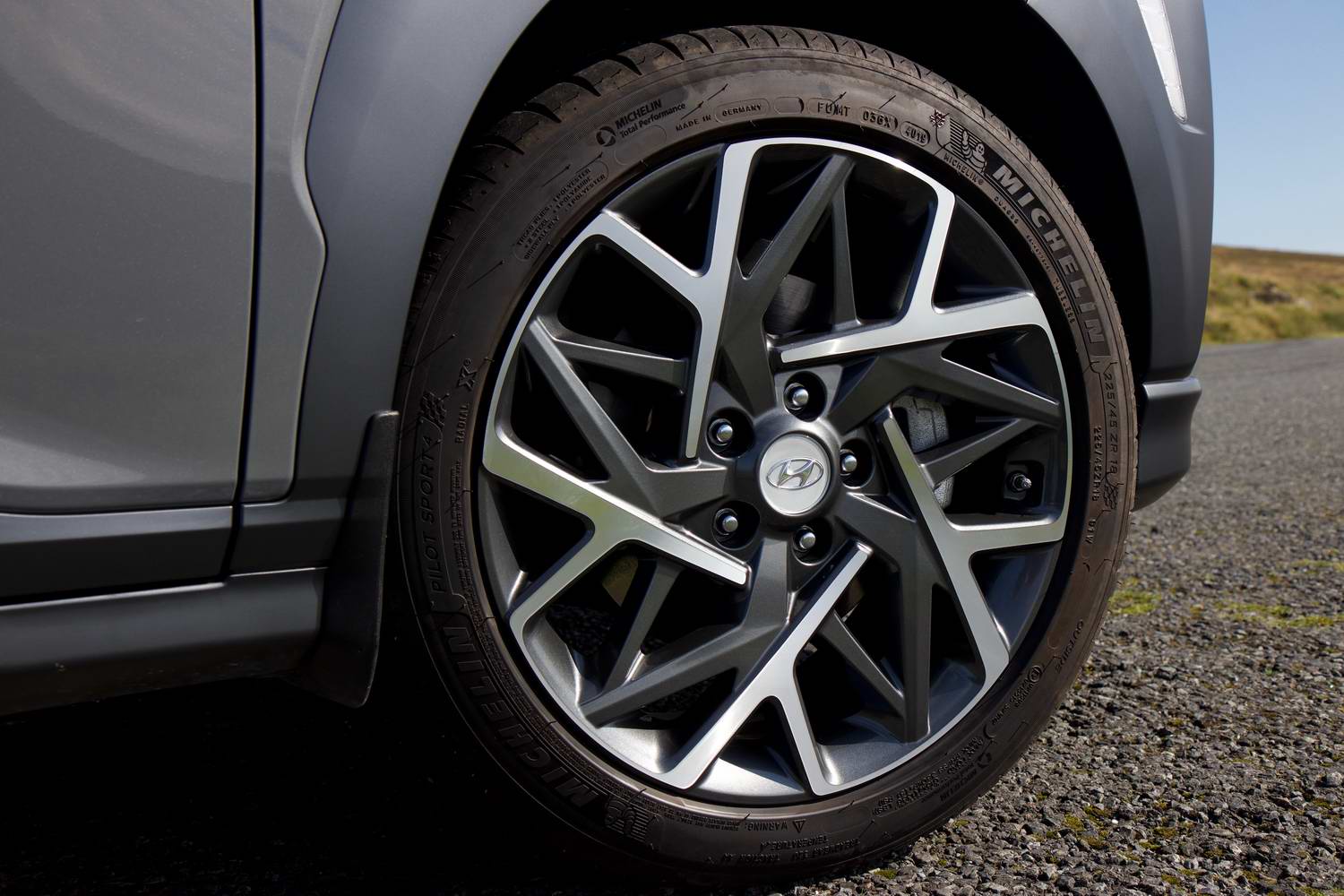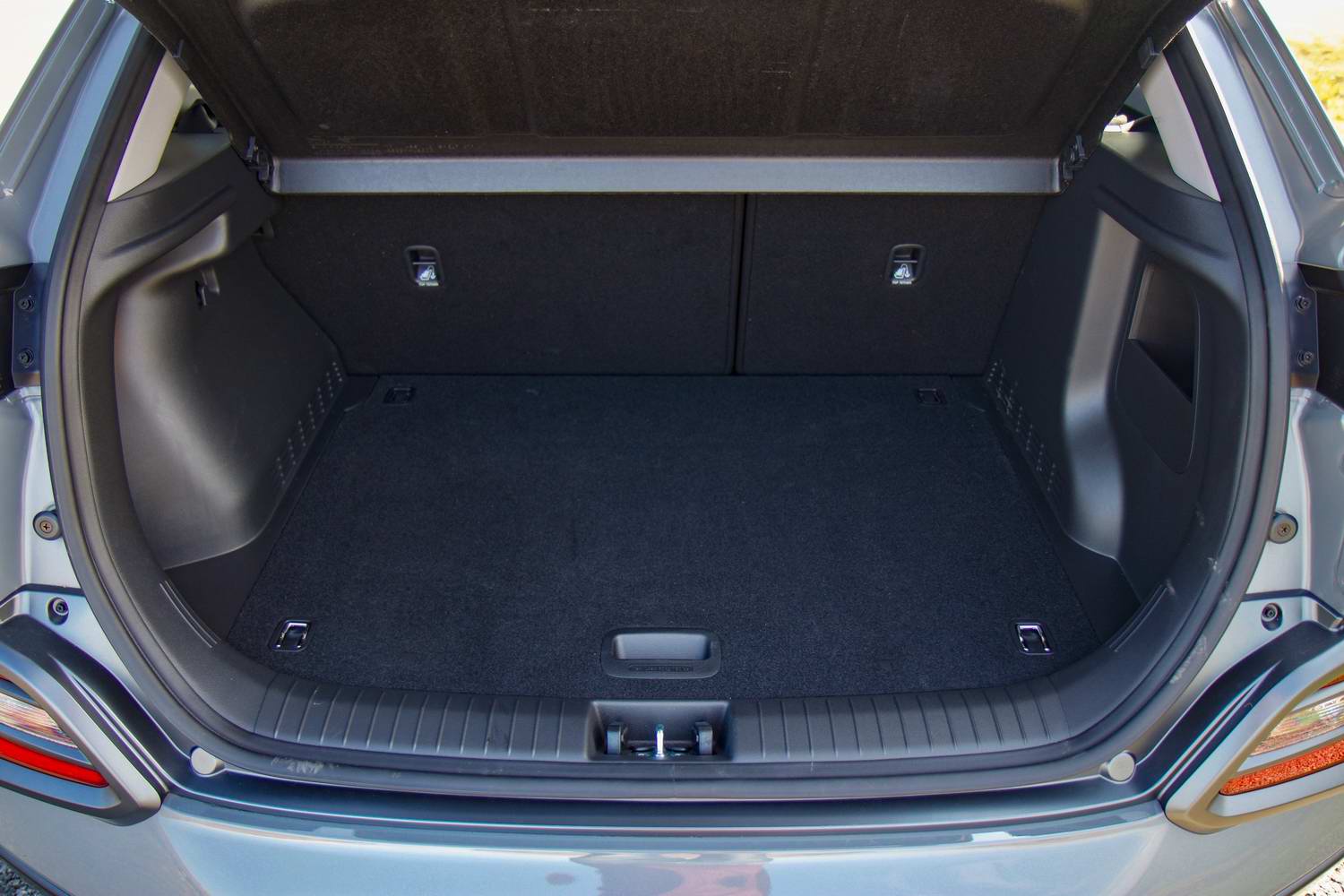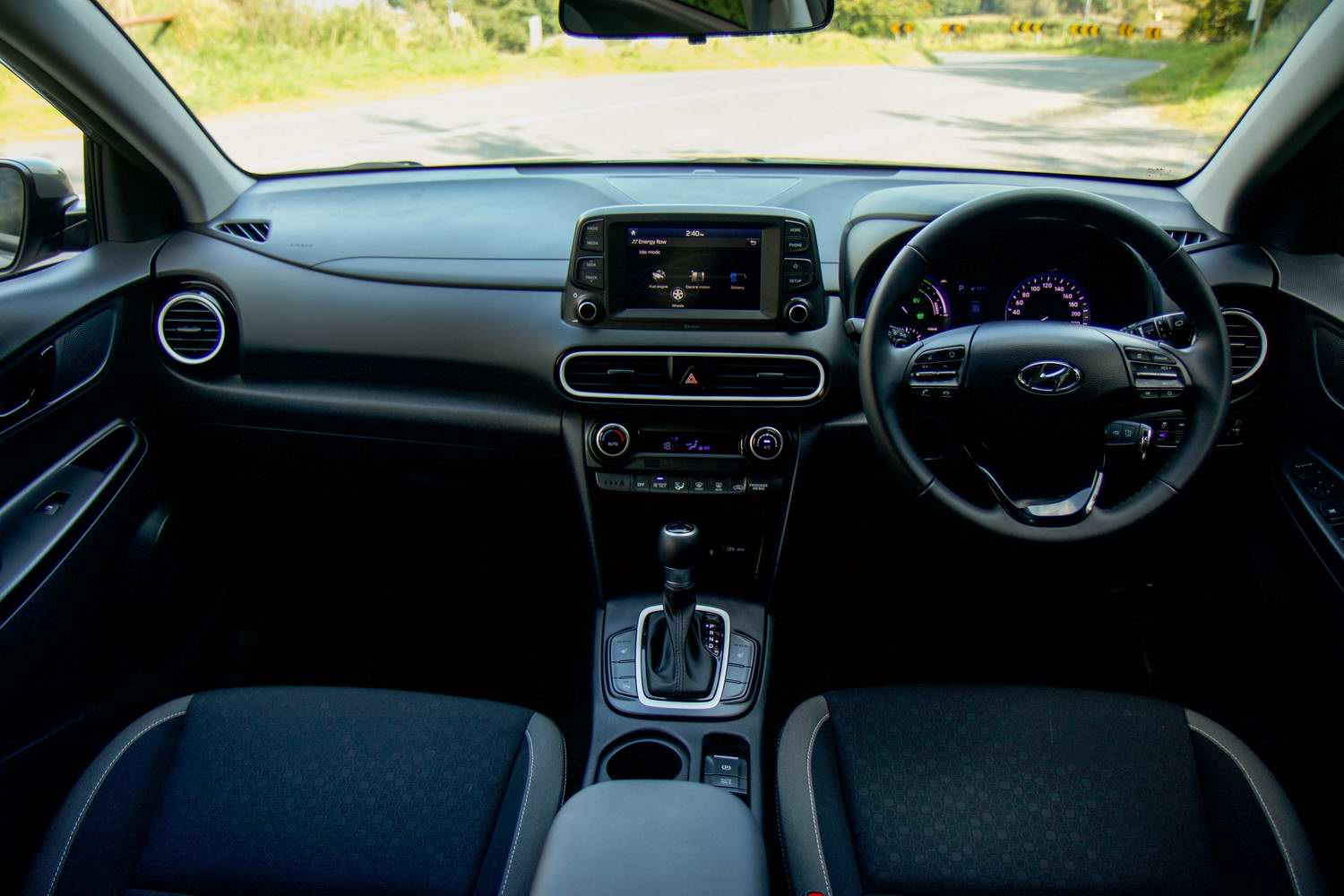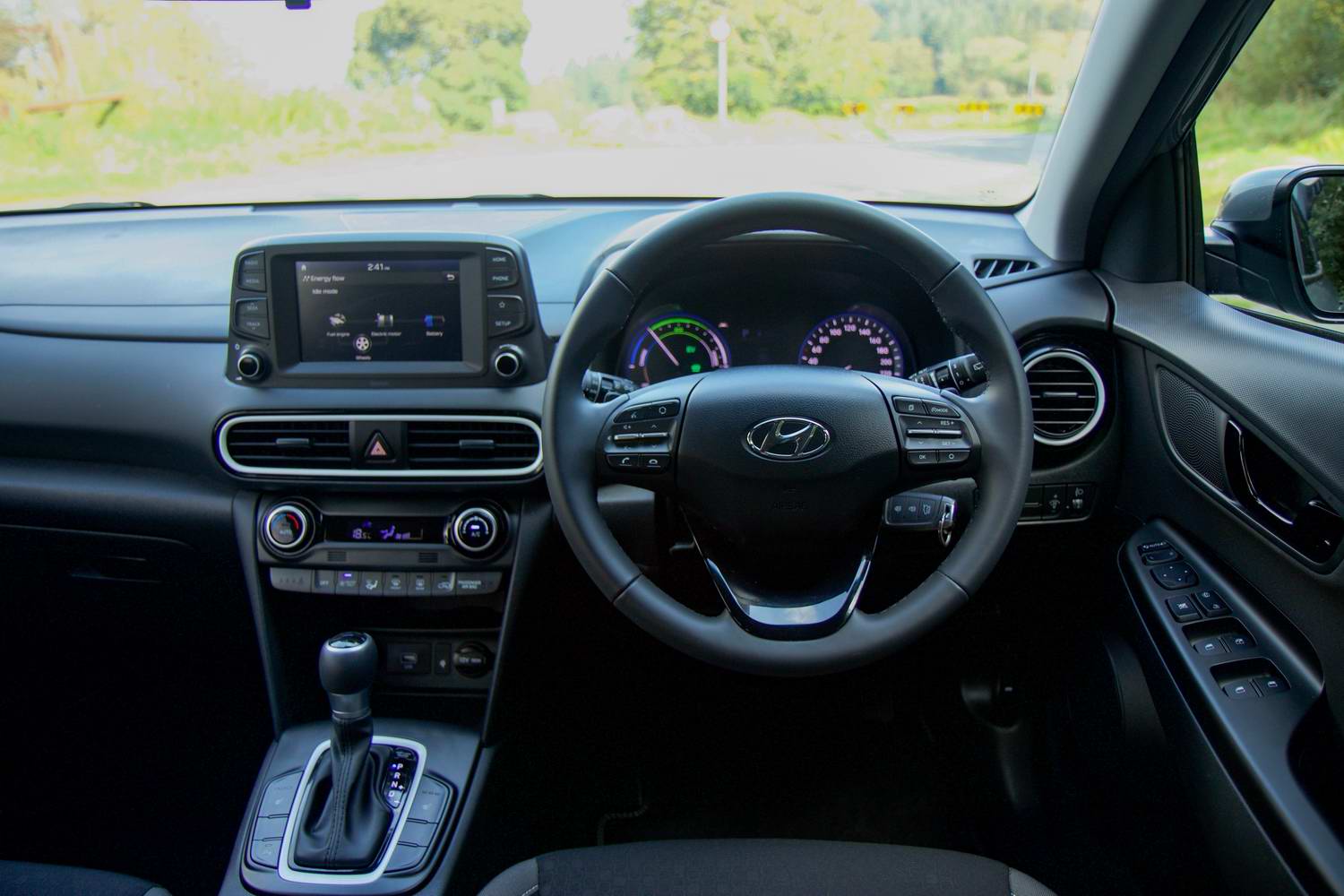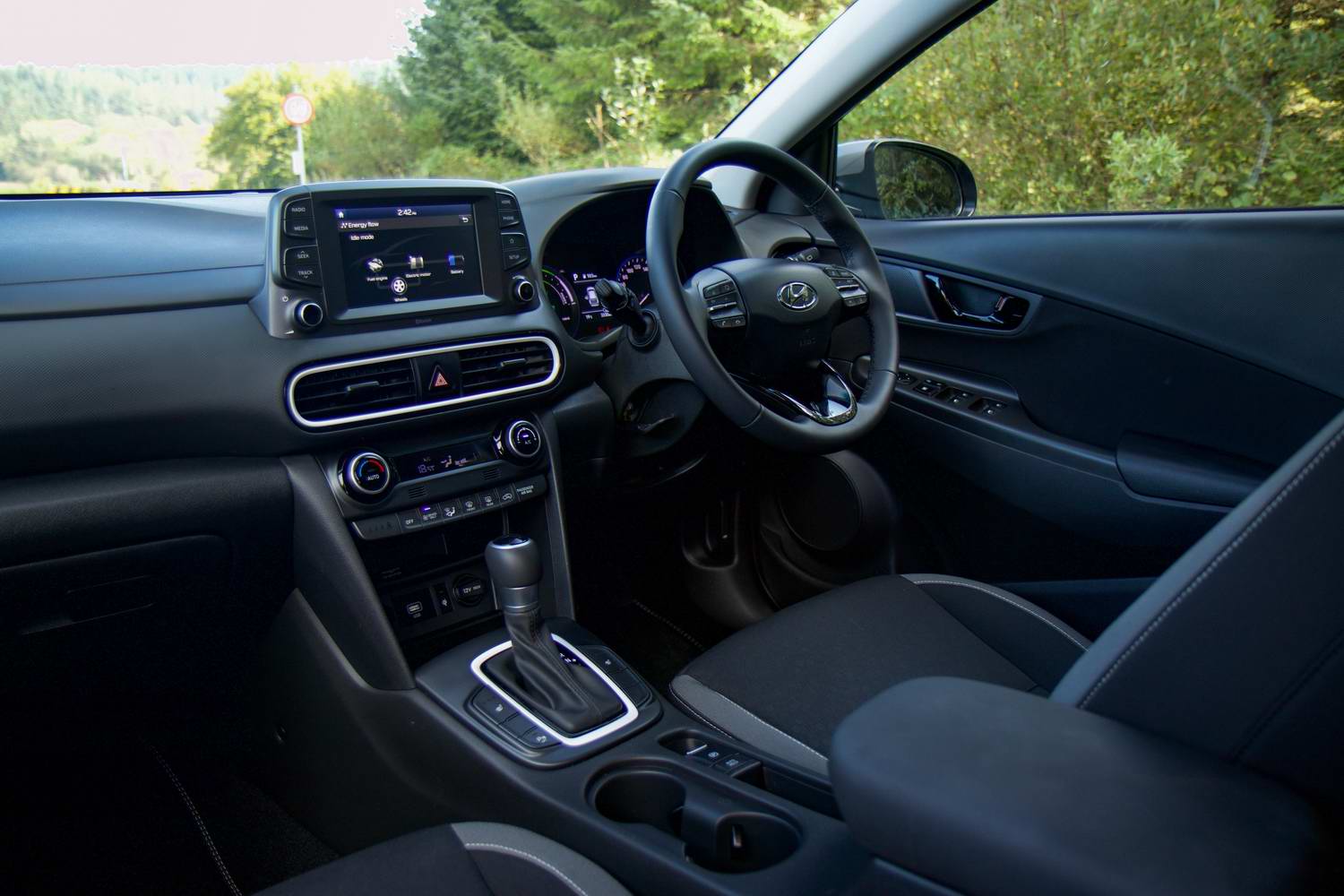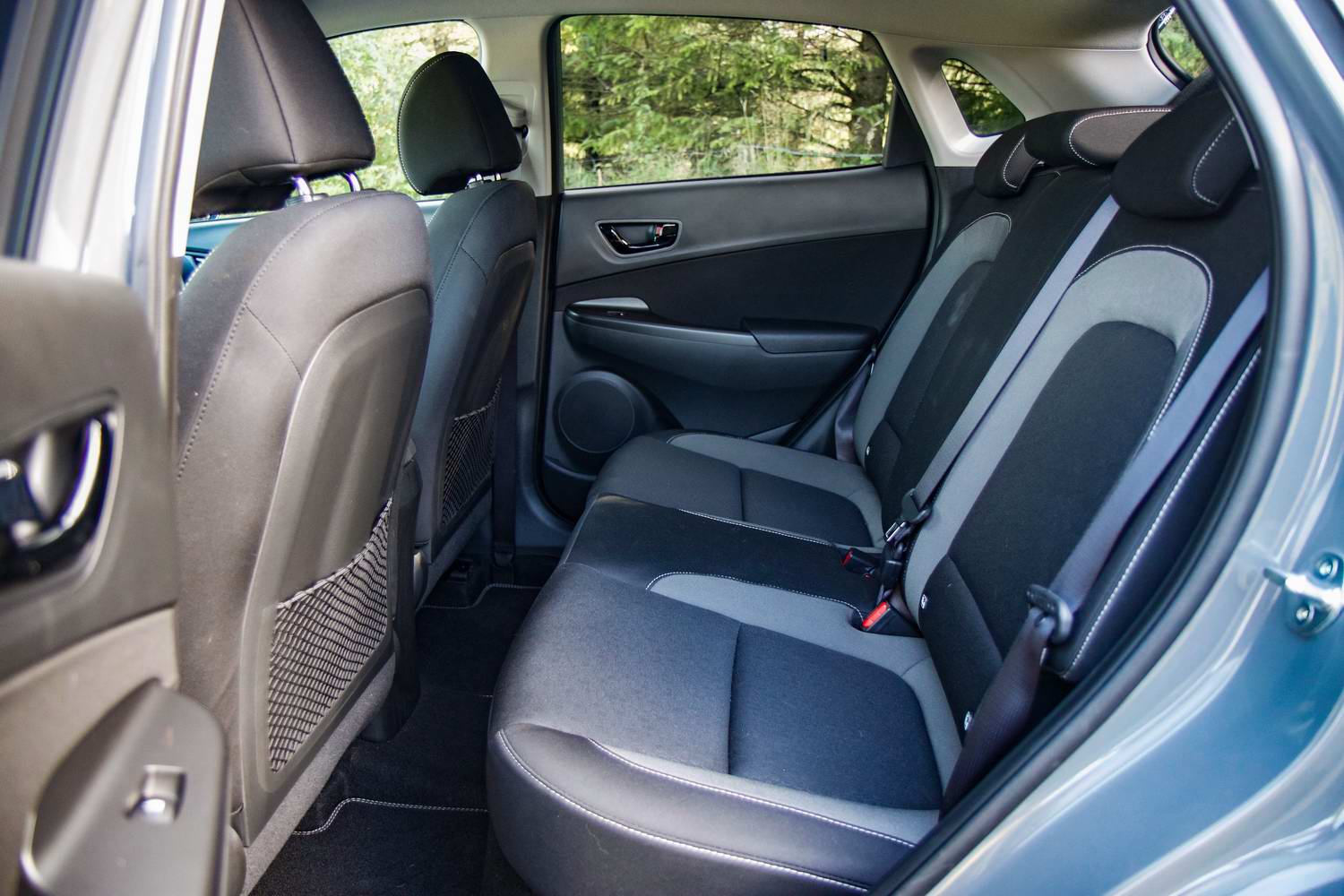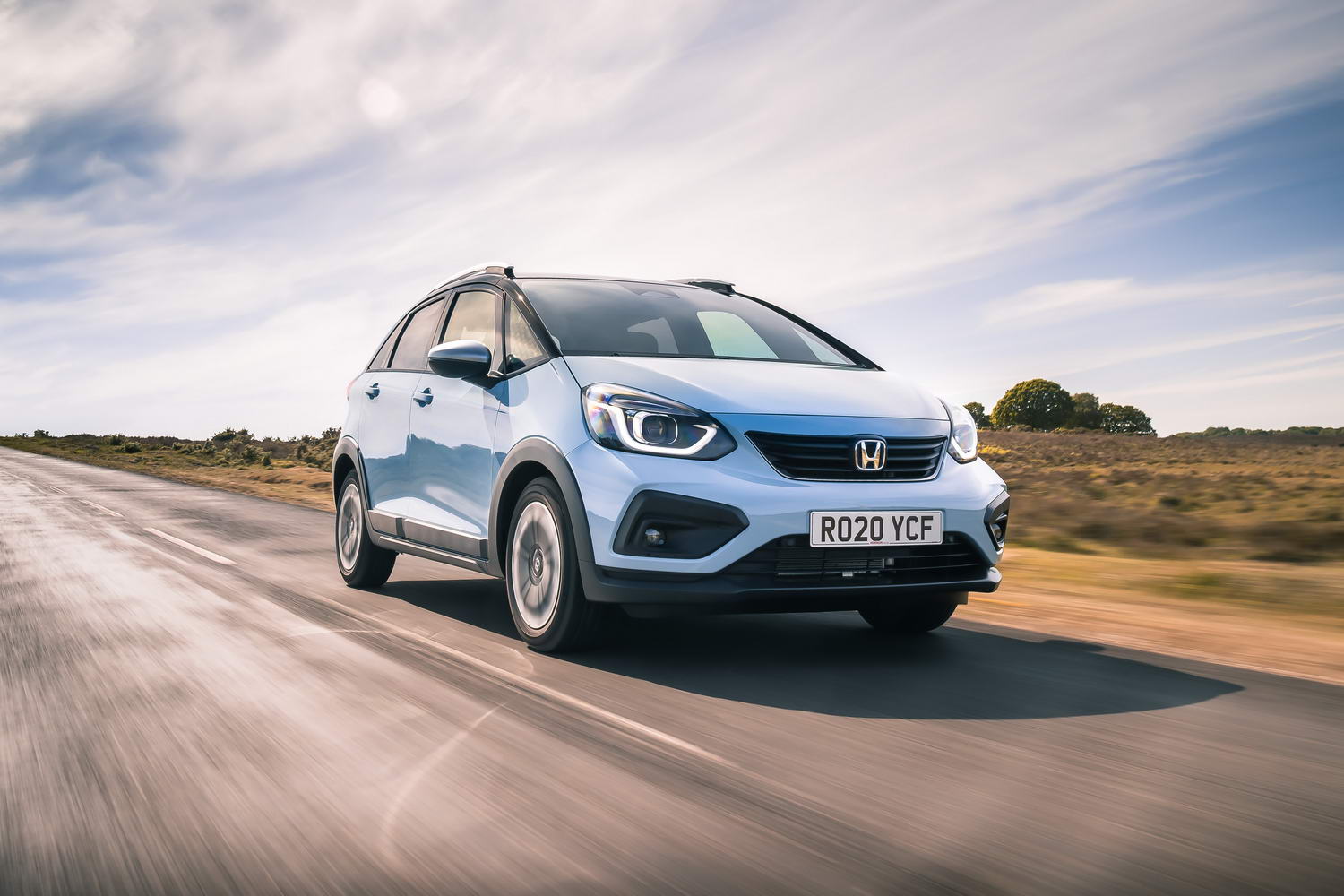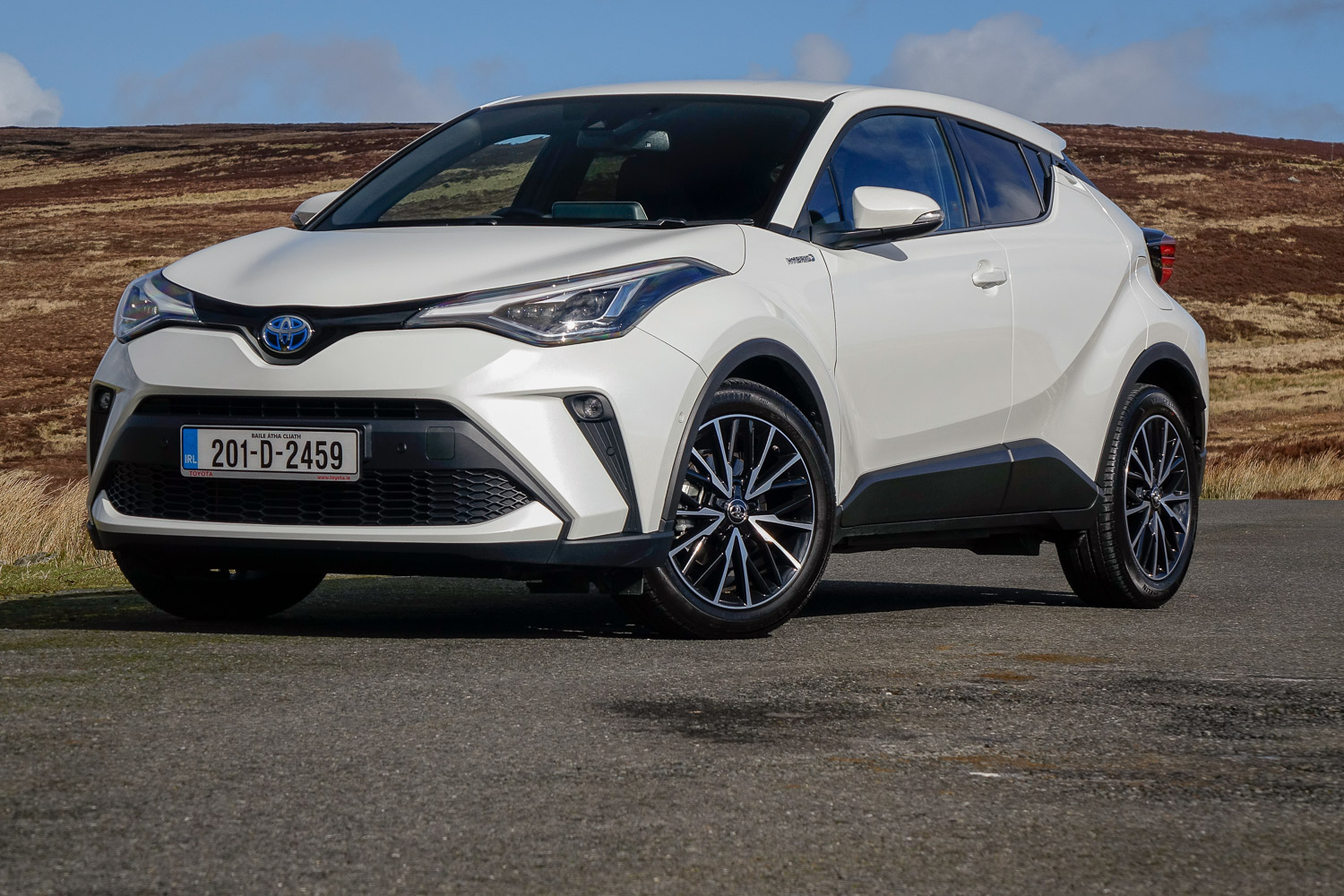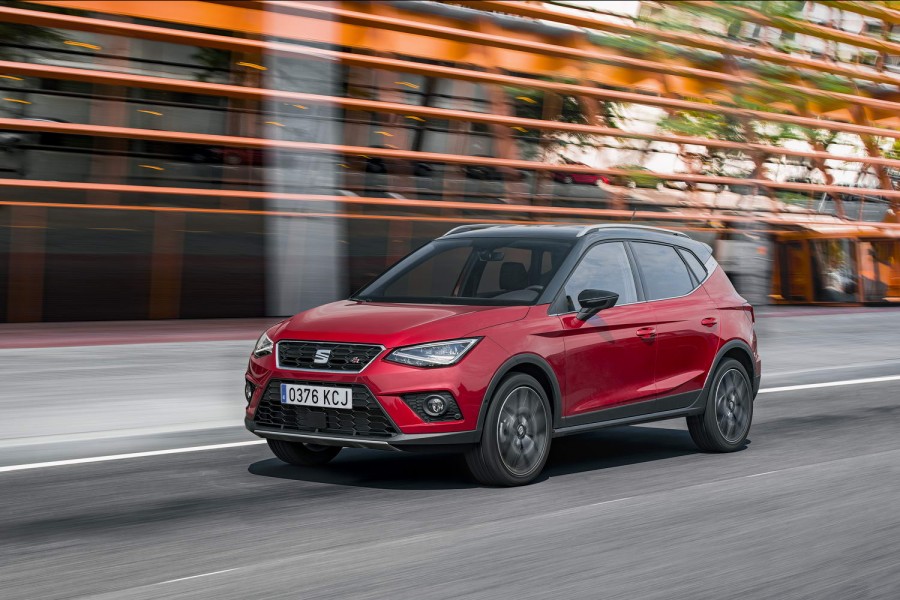What are you driving?
This is the Hyundai Kona Hybrid. Its electric sibling has been quite a success, but for those unable to plug in or go electric, this model could provide a route to reduced fuel costs and slightly lower local emissions. It is powered by a 1.6-litre petrol engine running on the Atkinson cycle, producing 105hp and 147Nm of torque. Accompanying that is a modest electric motor that generates 43hp and 170Nm of torque, and draws from a 1.56kWh lithium-polymer battery. Combined, they produce maximum outputs of 141hp and 265Nm.
The hybrid model is available in only one specification grade, called the Kona Executive, and costs €29,045, though it can be ordered with a two-tone roof that adds €600 to the price. The standard specification features sporty-looking 18-inch alloy wheels (that come shod with good Michelin tyres) and body coloured door handles and mirrors. Playing up the SUV styling, there's rugged looking plastic cladding around the wheel arches and sills, and this wraps around at either end to include the lower light clusters.
On the inside there is a multifunction steering wheel that is wrapped in leather, while the driver's seat provides electrically adjustable lumbar support, with manual controls for height adjustment. The seven-inch touchscreen display is fine, but looks small in comparison to the growing trend of installing larger displays in cars. One upside is that, along with Android and Apple smartphone mirroring, there is a wireless charging pad in addition to the USB-A charge port and 12-volt socket.
Name its best bits
Gear changes are relatively smooth thanks to a dual-clutch six-speed automatic gearbox, and once you're up to speed the Hyundai provides a ride that is generally smooth even with those 18-inch wheels. You can fling it into a bend and it sticks rather well (remember those sticky Michelin tyres we mentioned earlier) and, even though it's not overtly sporty, few will find fault in how the Hyundai handles.
The start-stop function of the engine is quick to cut out when stationary and isn't uncouth as it restarts. Only when you start looking for maximum performance does the engine start to become quite noisy, but stick to calm and considerate driving and you'll appreciate the relative refinement that's available, especially when remaining within urban confines.
Anything that bugs you?
Even with the most careful of driving, the Hyundai doesn't seem to spend as long using only battery power as some hybrid competitors do. Neither does the Kona have an EV button to enable to you to choose to drive in purely electric mode. To be fair to the Hyundai, in conventional series hybrids, this function is quite limited anyway.
It's also not that brisk. Granted, outright performance isn't a thing you readily associate with a hybrid, but the Kona Hybrid does feel sluggish when moving away from a standstill.
Furthermore, the display for the battery's state of charge rarely went beyond the 'half full' mark in our time with the car and, unless you are recuperating energy while driving down a massive hill, this rarely changes. When it comes to rear space, the Kona doesn't feel quite as roomy as some rivals and, at 361 litres, the boot is smaller than you'll find in conventional hatchbacks, such as the Volkswagen Golf.
And why have you given it this rating?
The Kona Hybrid offers average hybrid performance at best. It's not as polished as its main rivals and simply put it doesn't produce massive fuel savings in comparison to a non-hybrid variant. During our time with it, even driving as economically as possible, it returned an average of 5.2 litres/100km. On the motorway the fuel consumption figure will rise by a fair bit, which is why we only recommend this car to those who undertake short journeys for the most part.

